Film director, Sam Fleischner’s studio apartment in Prospect Heights is a little oasis within the metropolis of New York. Having built parts of the interior with his own bare hands, this is a personalised space. His typical New Yorker rooftop is the perfect place to hang out and absorb the energy of city. While driving in Sam’s car along Linden Boulevard toward Rockaway Beach, he discusses his recent film, Wah Do Dem, a homage to one of his favorite countries, Jamaica, and his ongoing attraction to Caribbean culture and scenery. Passing through the ever-changing demographic and ethnic landscape that defines New York, Sam shares his views on the responsibility of being a filmmaker and the film industry as a whole. His aspiration and hope is to broaden people’s minds via the medium of film.
At Sam’s beach house, which he shares with two of his friends, it quickly becomes apparent how deeply involved Sam has become with the community of New York’s metropolitan outskirts. A quick chat with the neighbors is followed by a visit to the vegetable garden in order to straighten some tomato plants and then off to visit a friend’s nearby boardwalk cafe. The day at the beach ends the only way it should, with a visit to the legendary Rockaway Taco.
This portrait is part of our ongoing collaboration with ZEIT Online who presents a special curation of our pictures on their site.
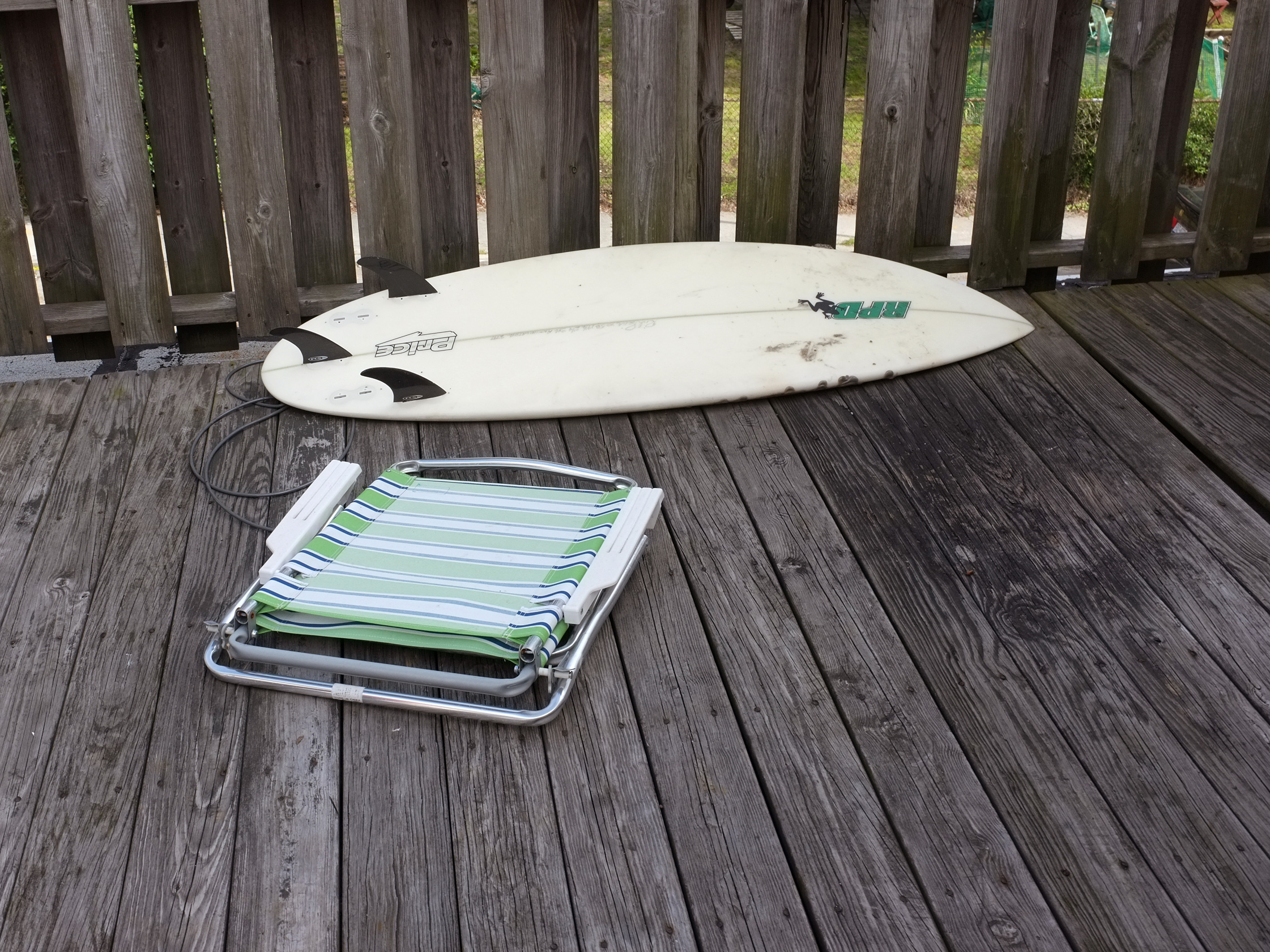
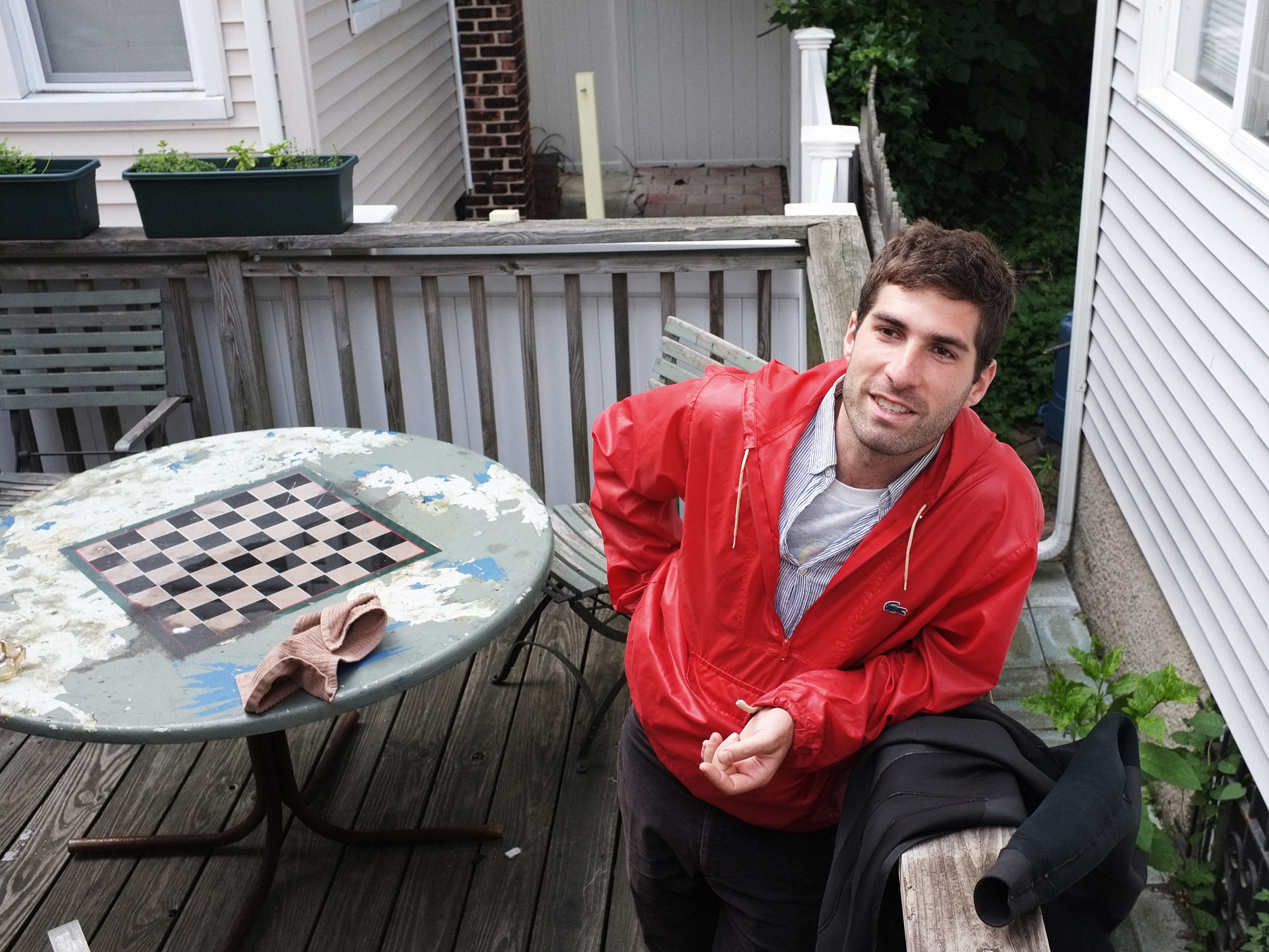
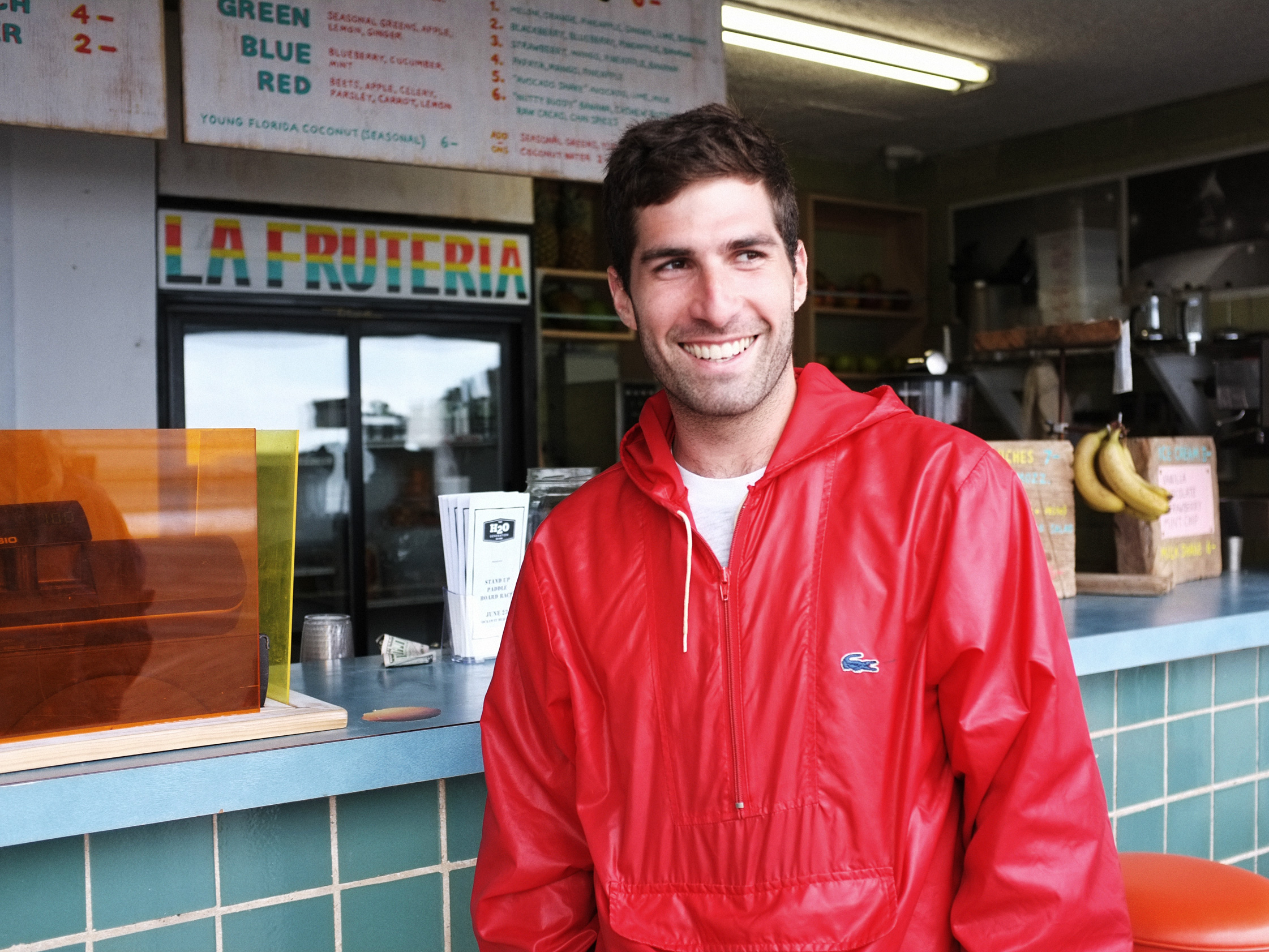
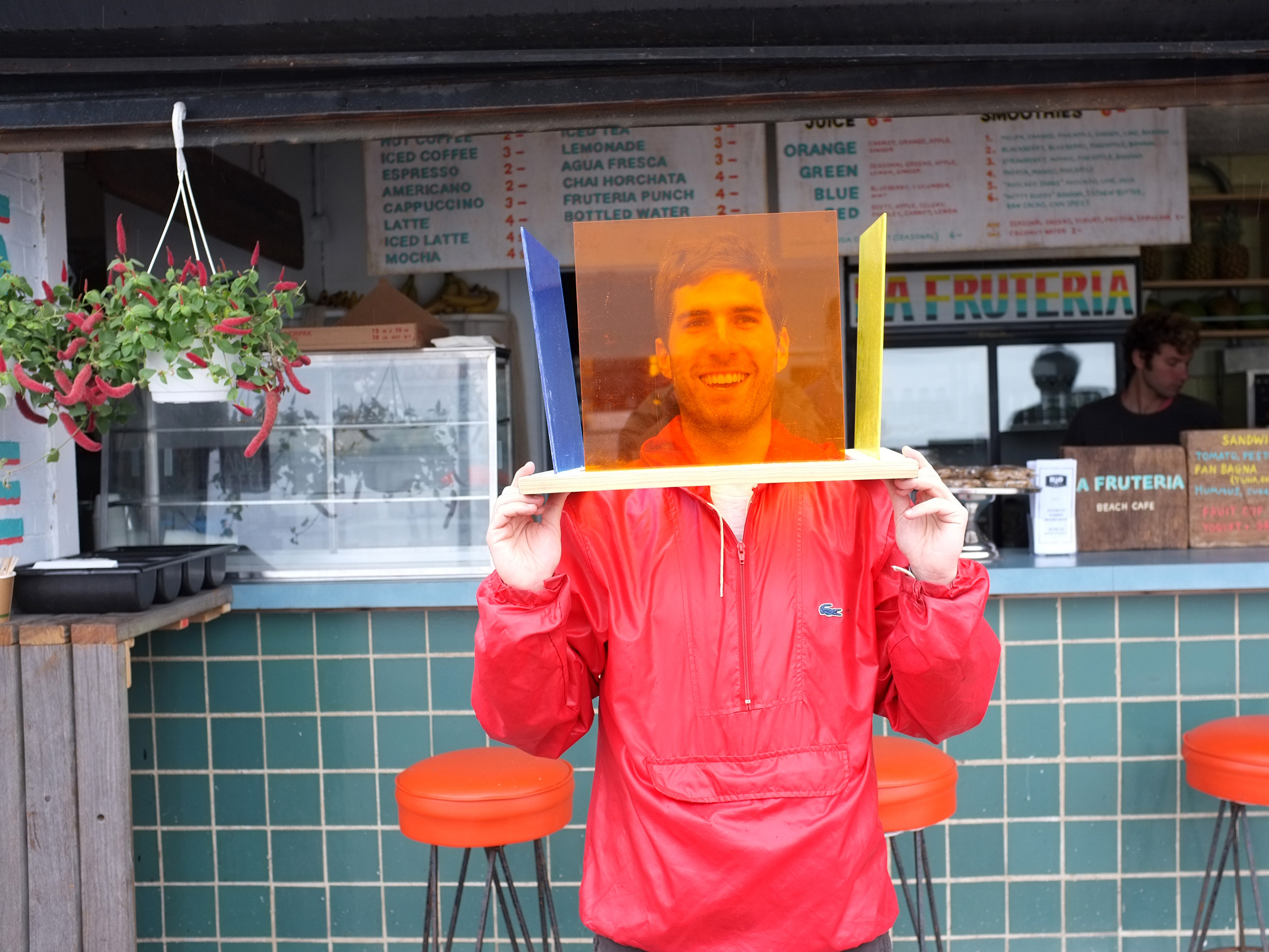
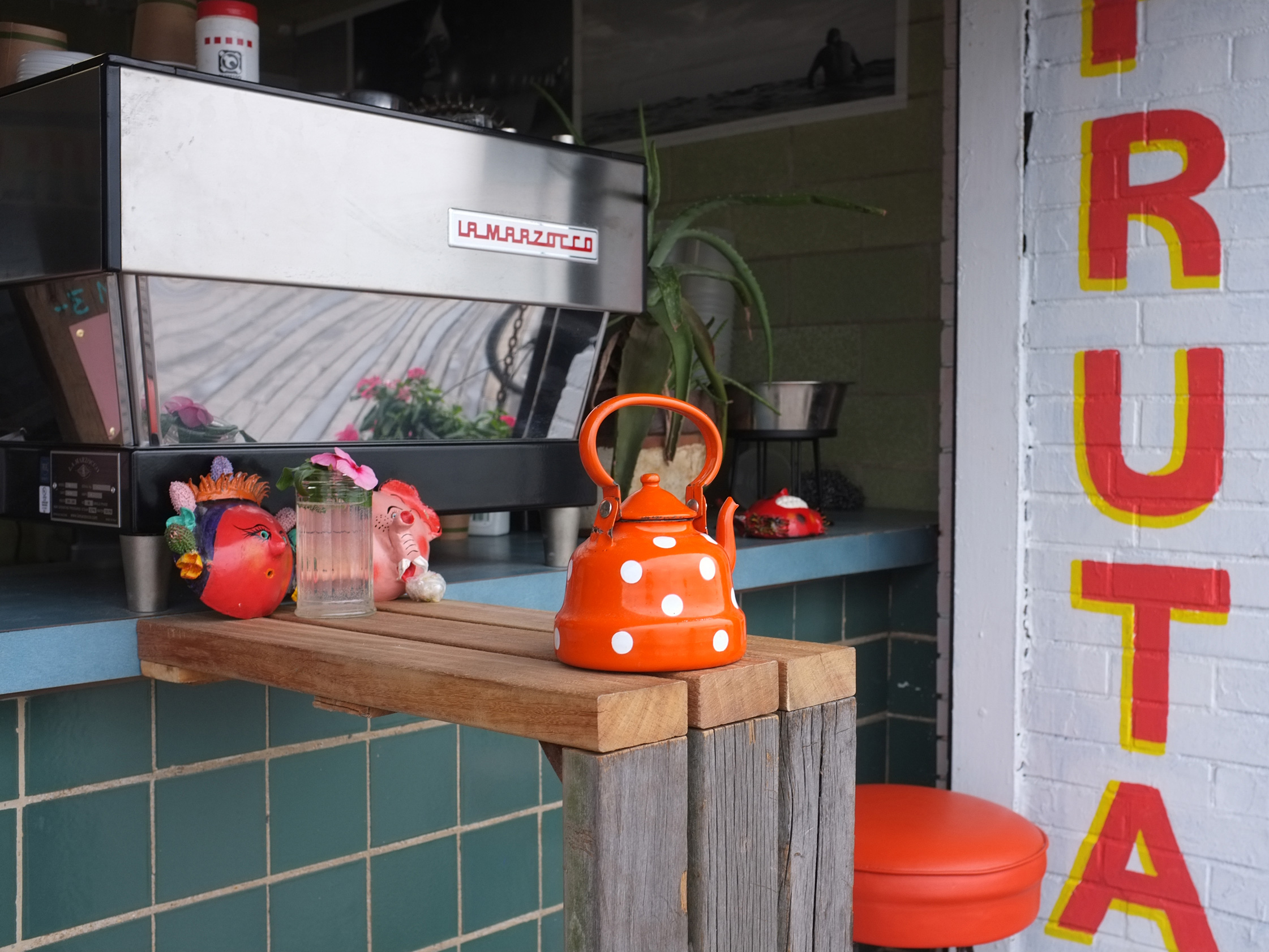
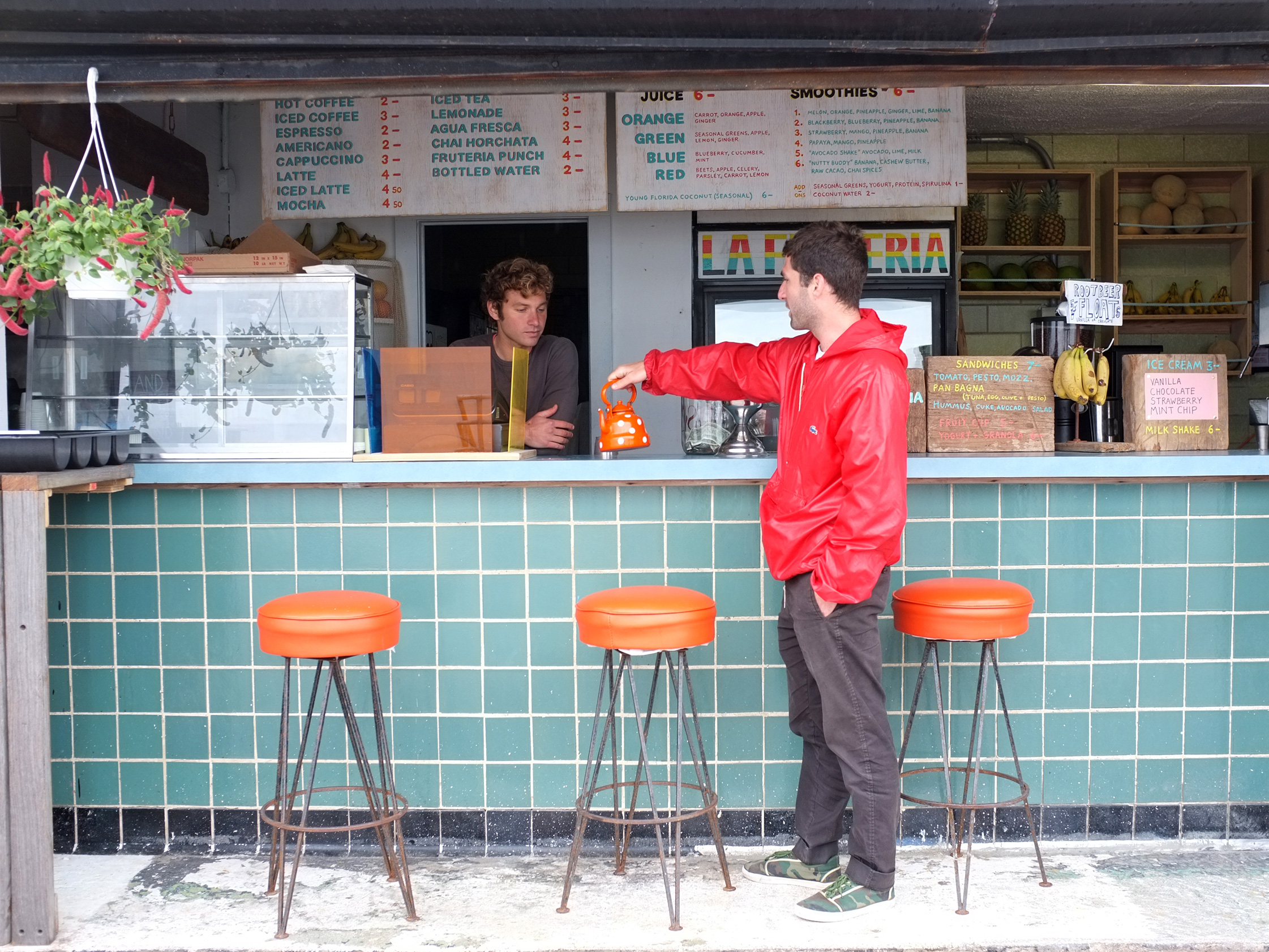
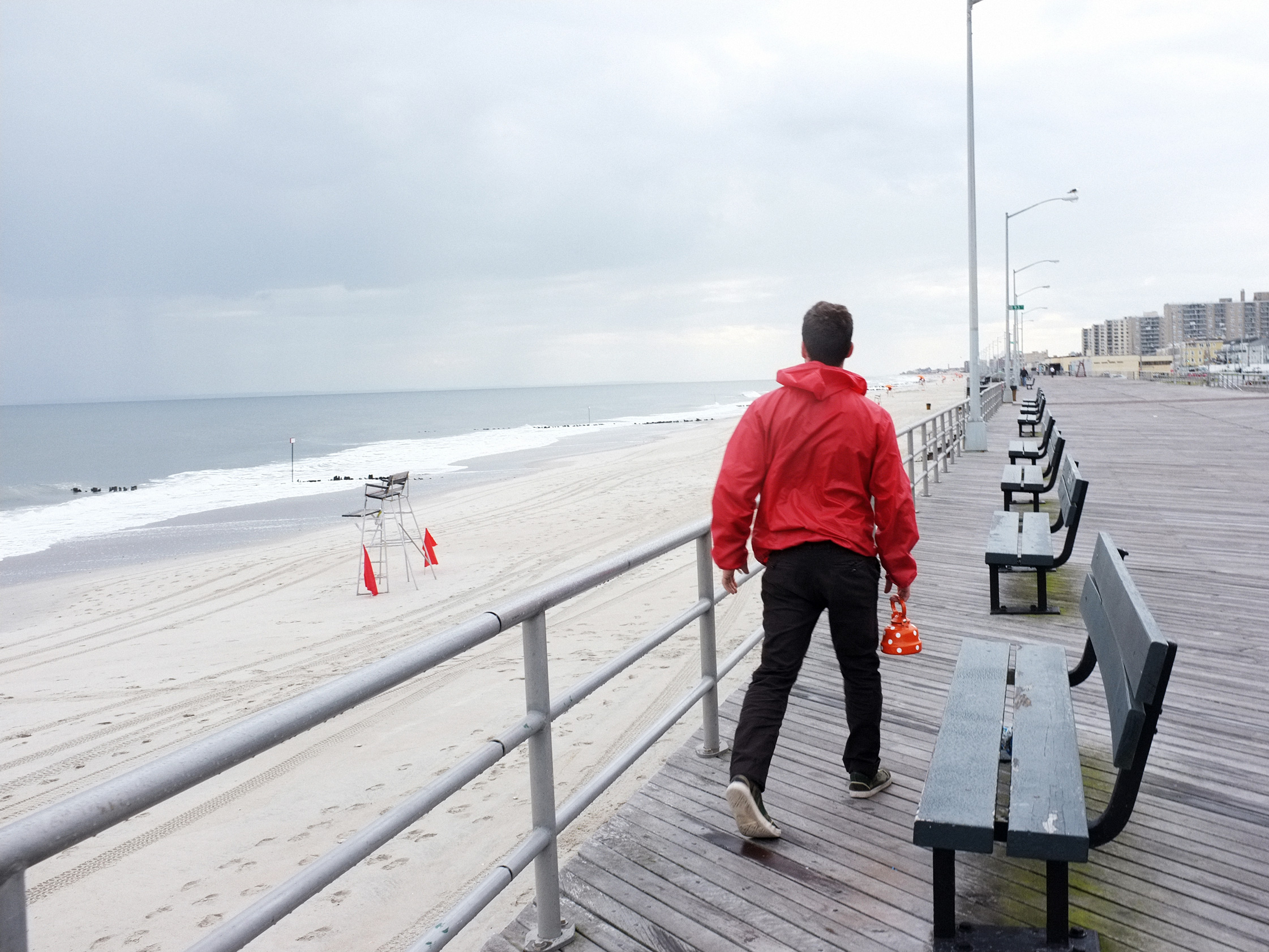
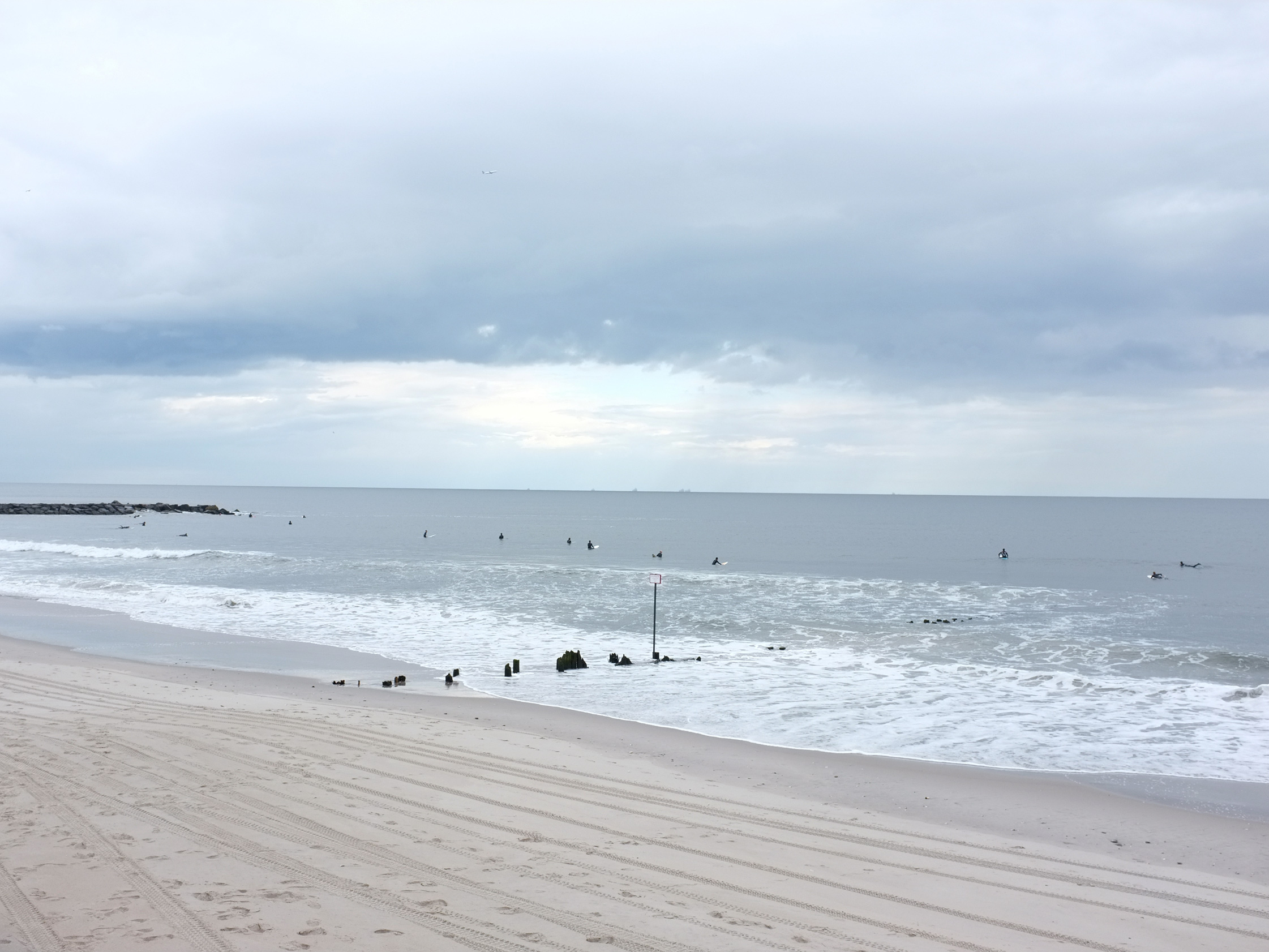
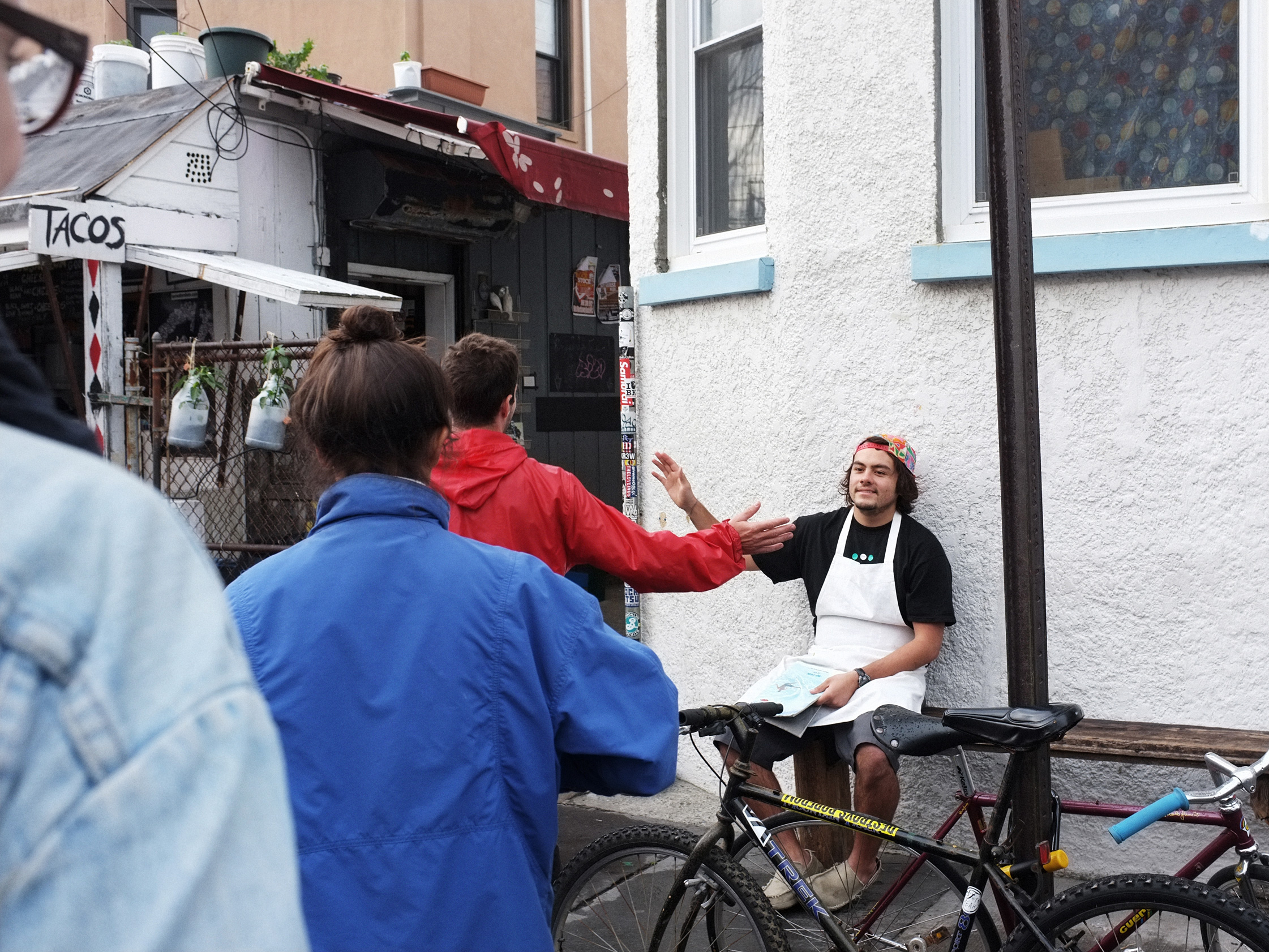
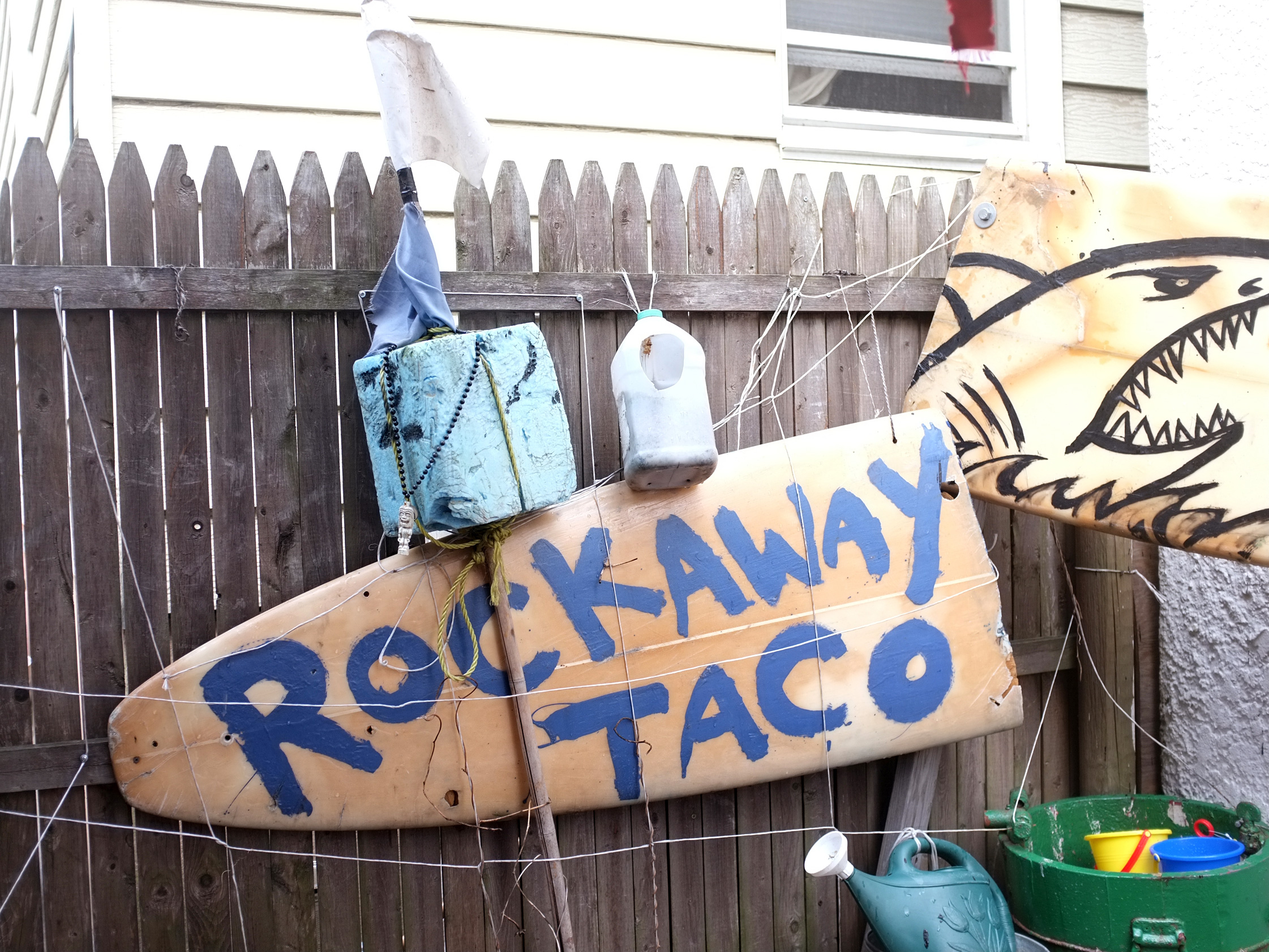
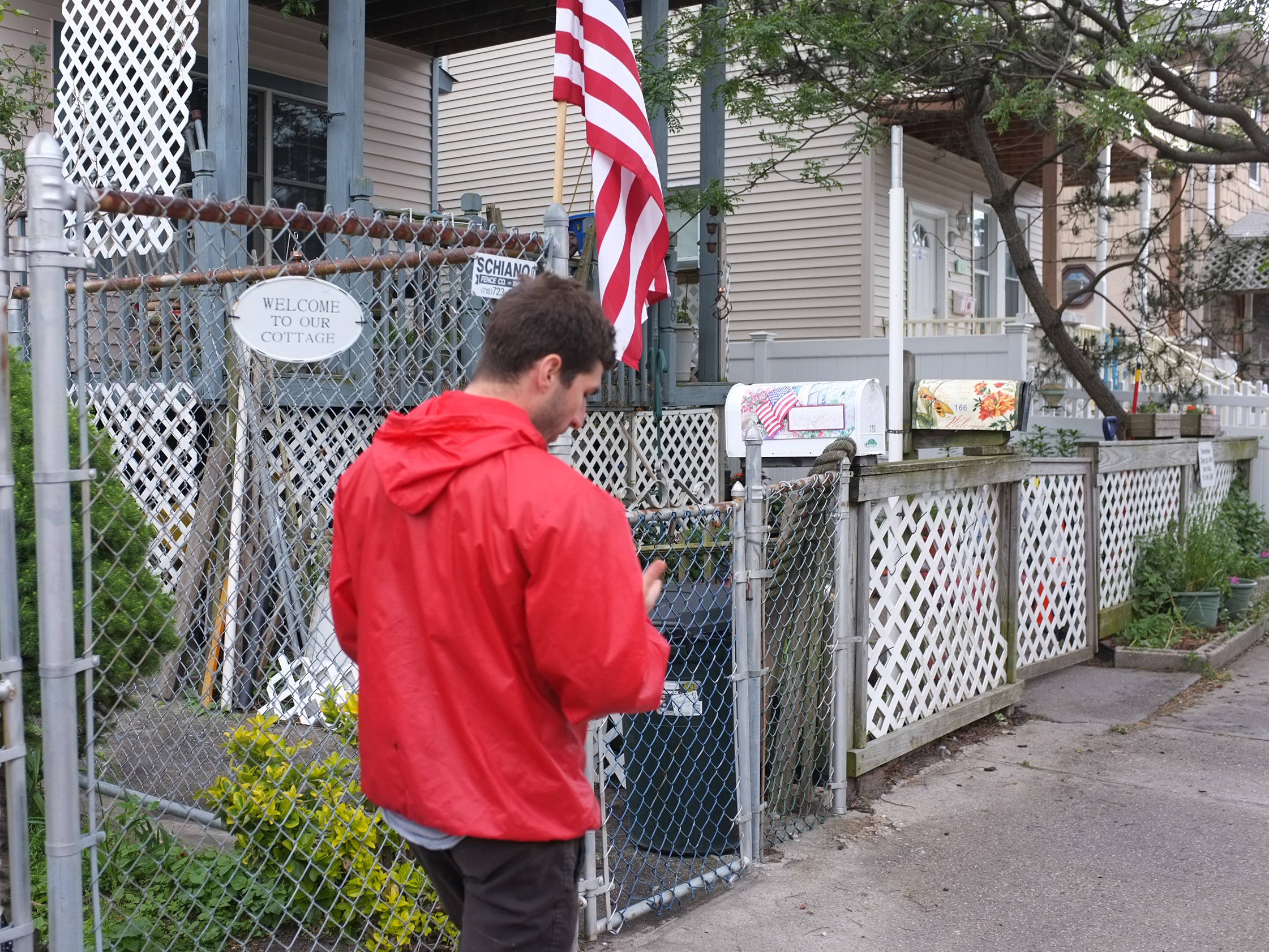
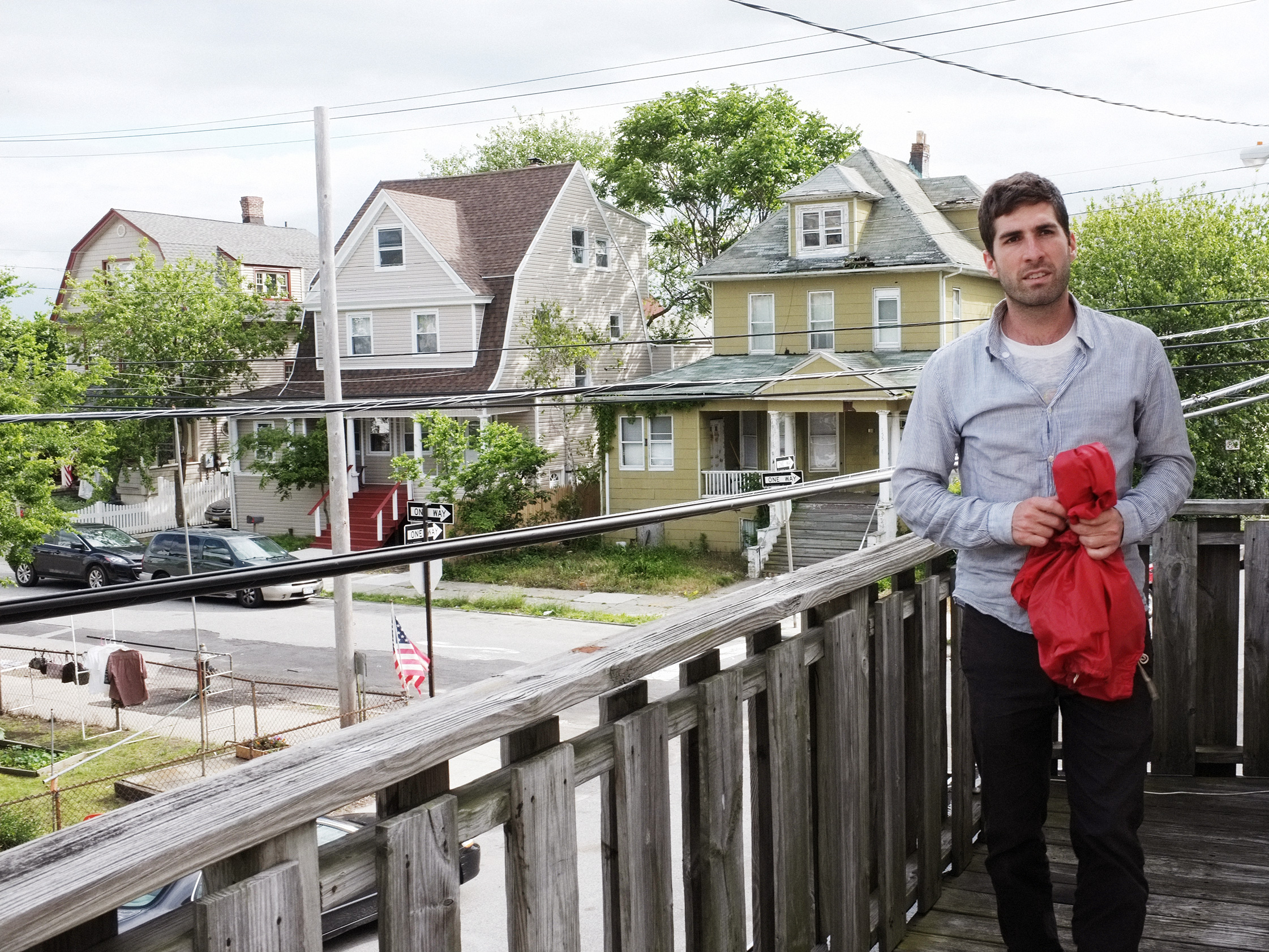
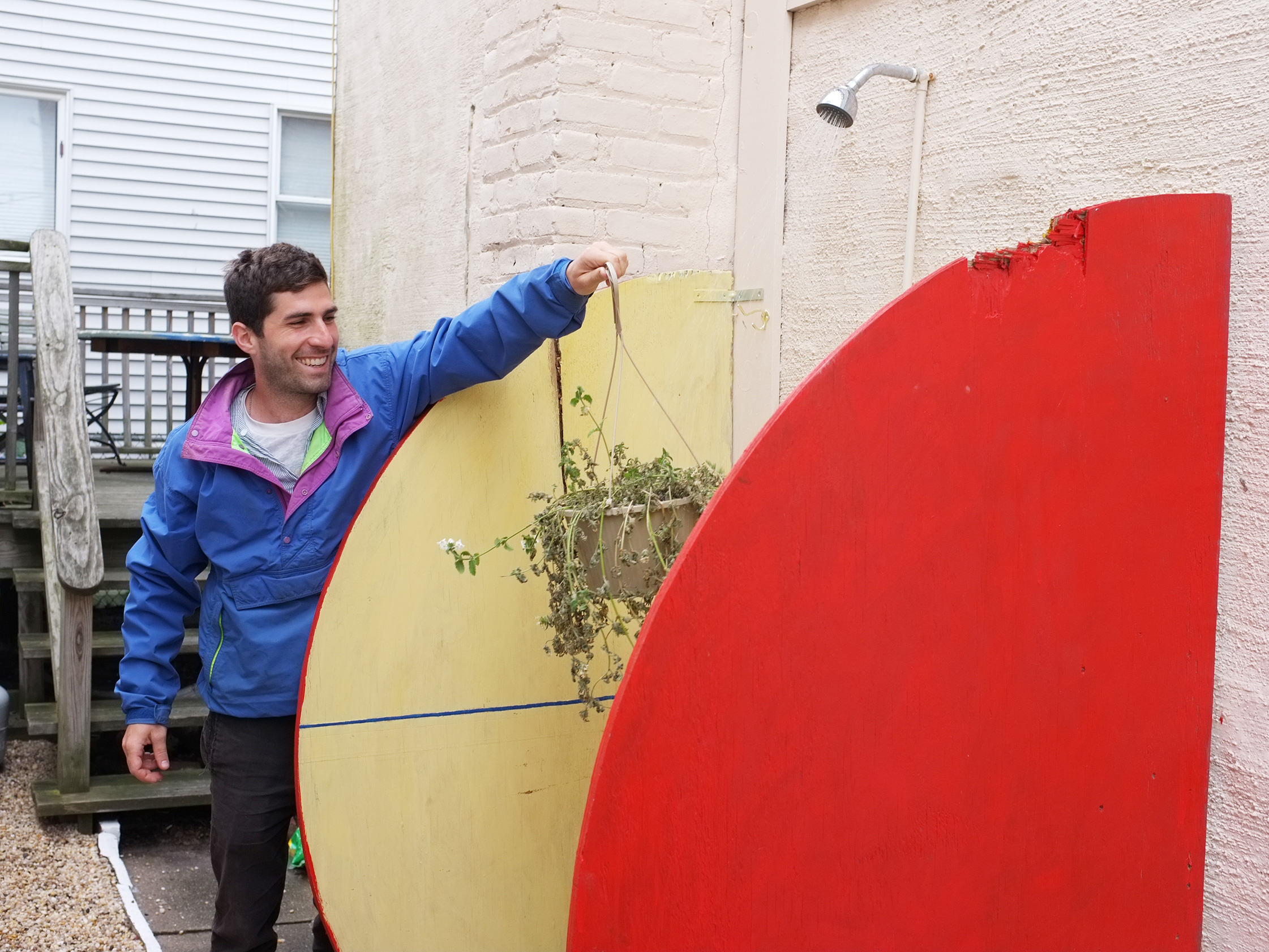
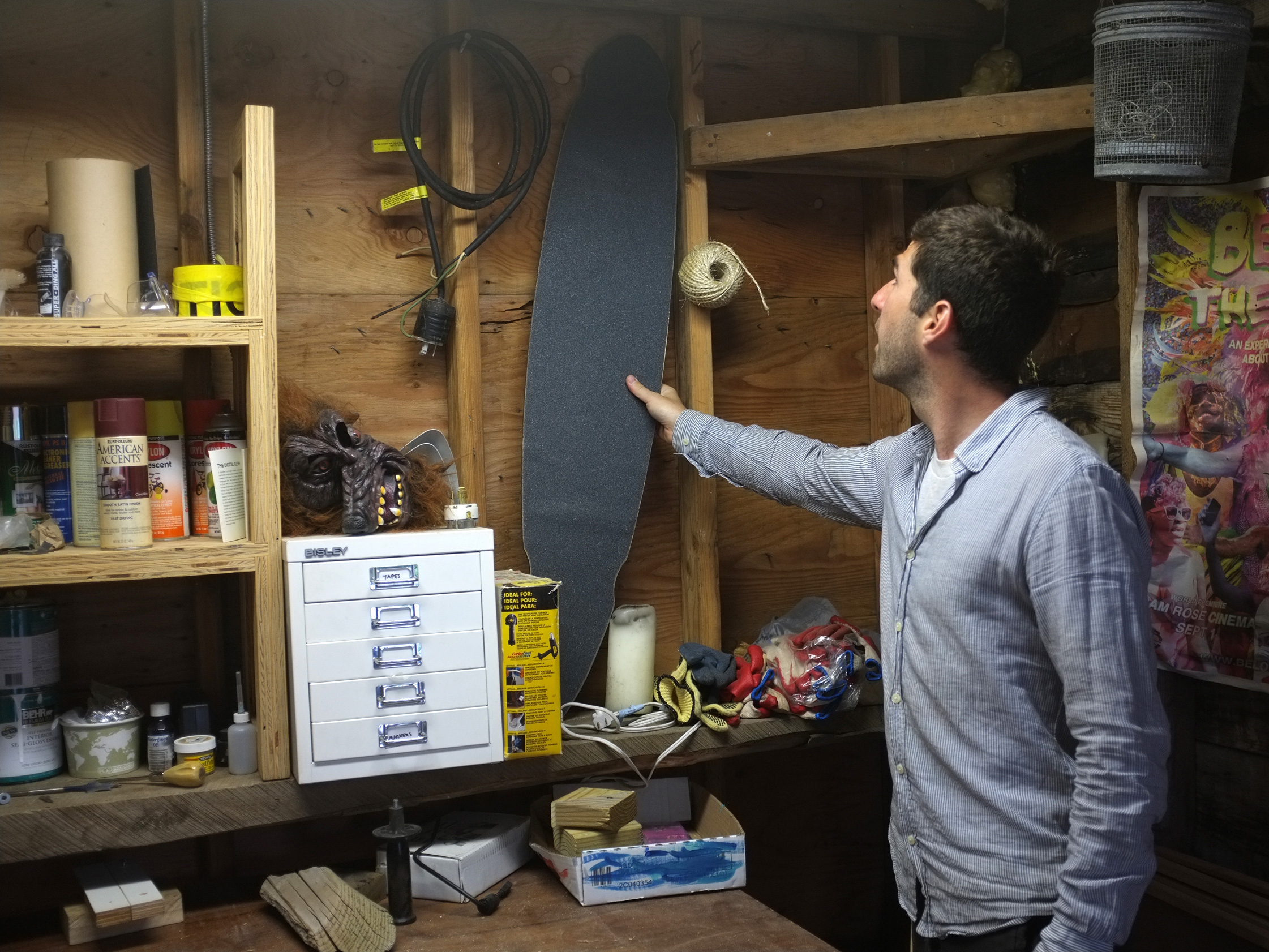
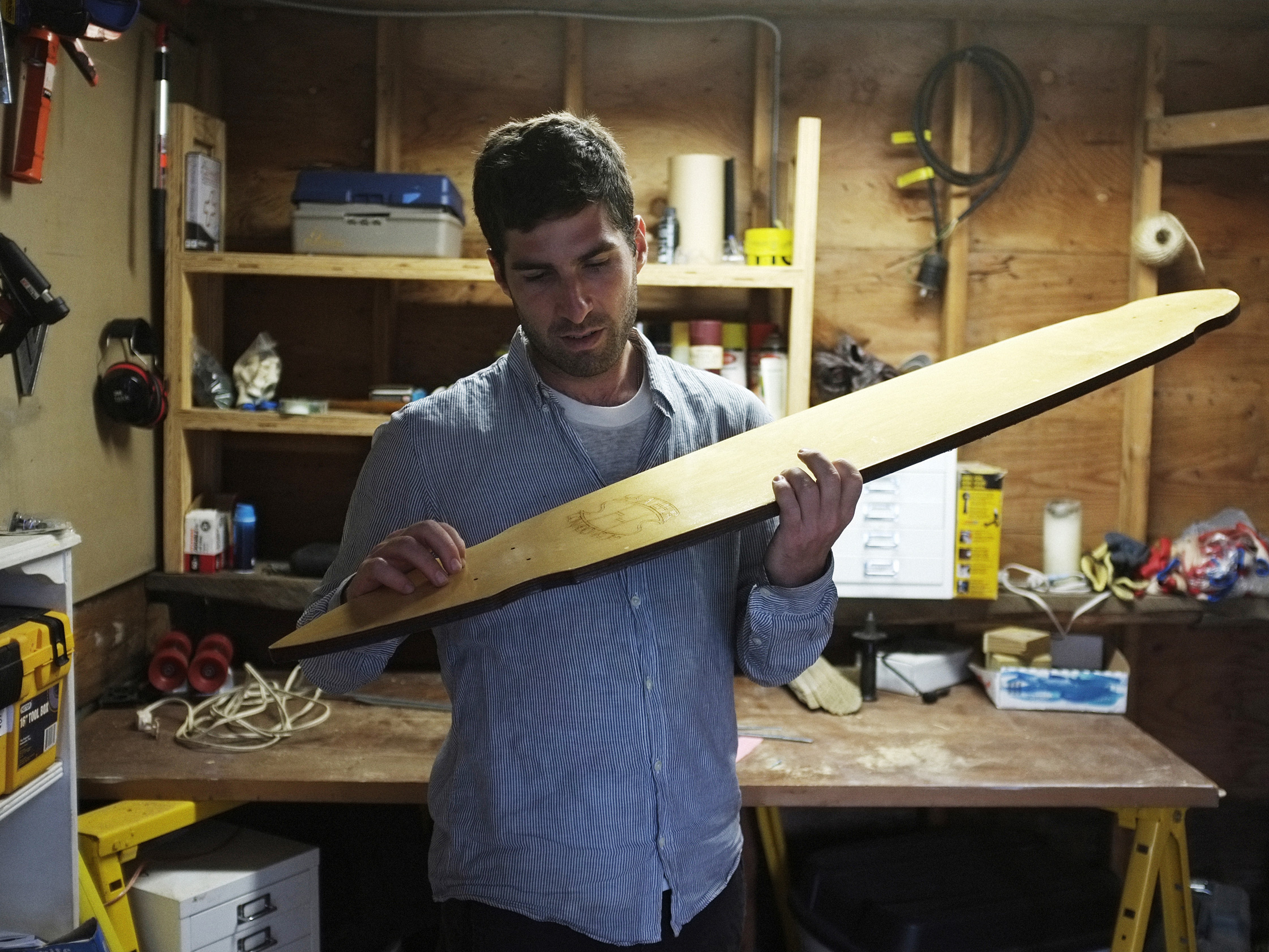
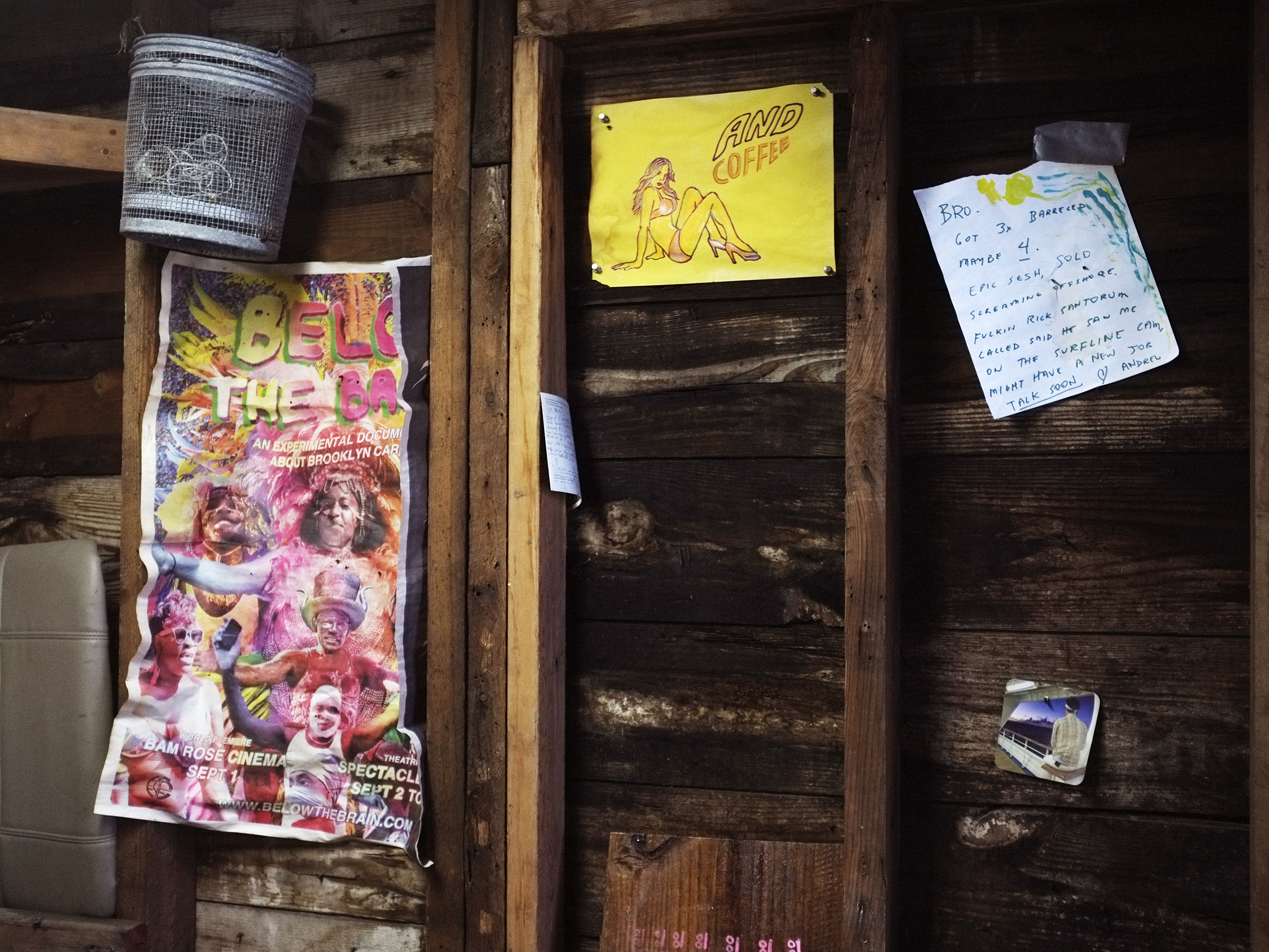
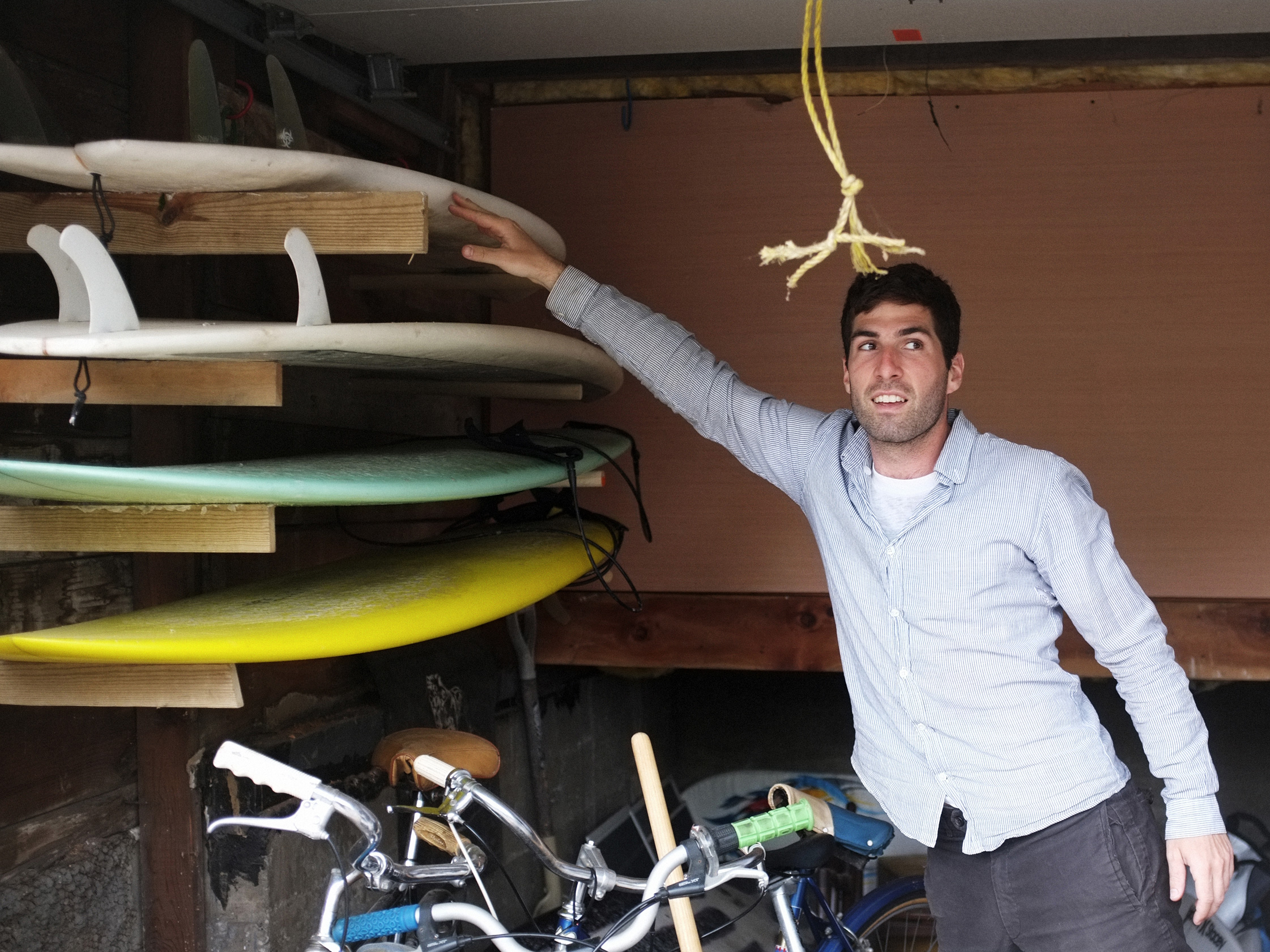
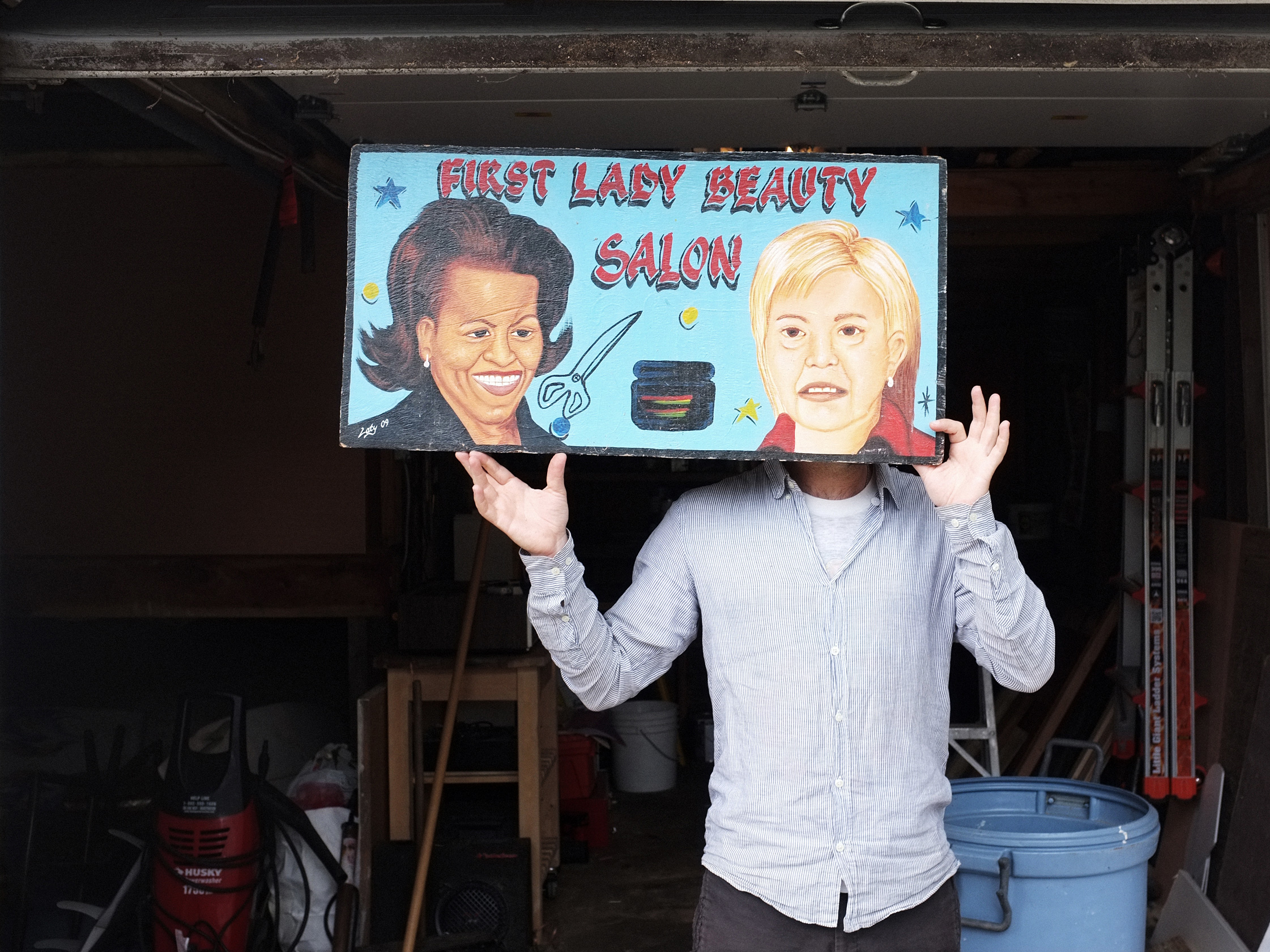
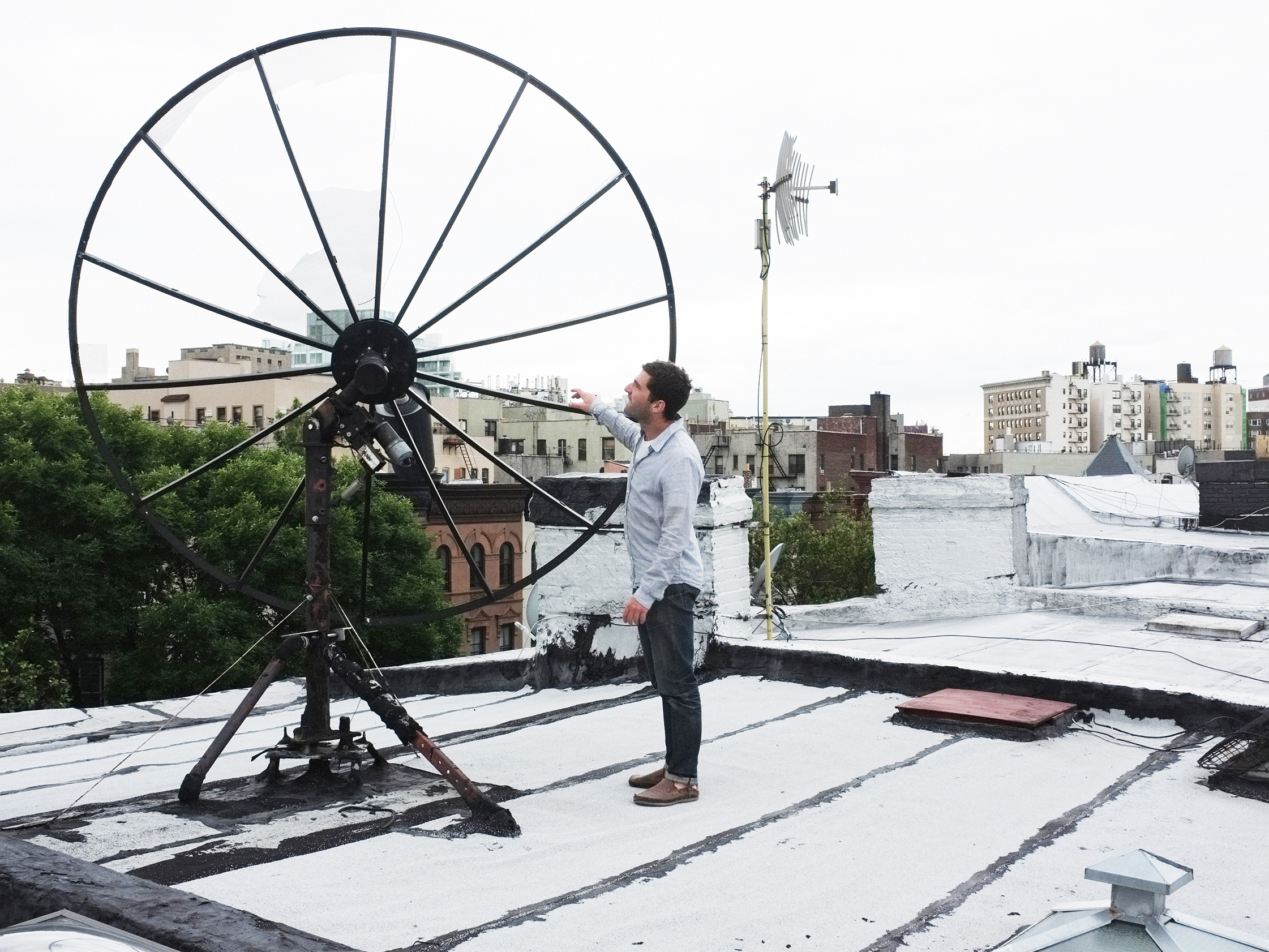
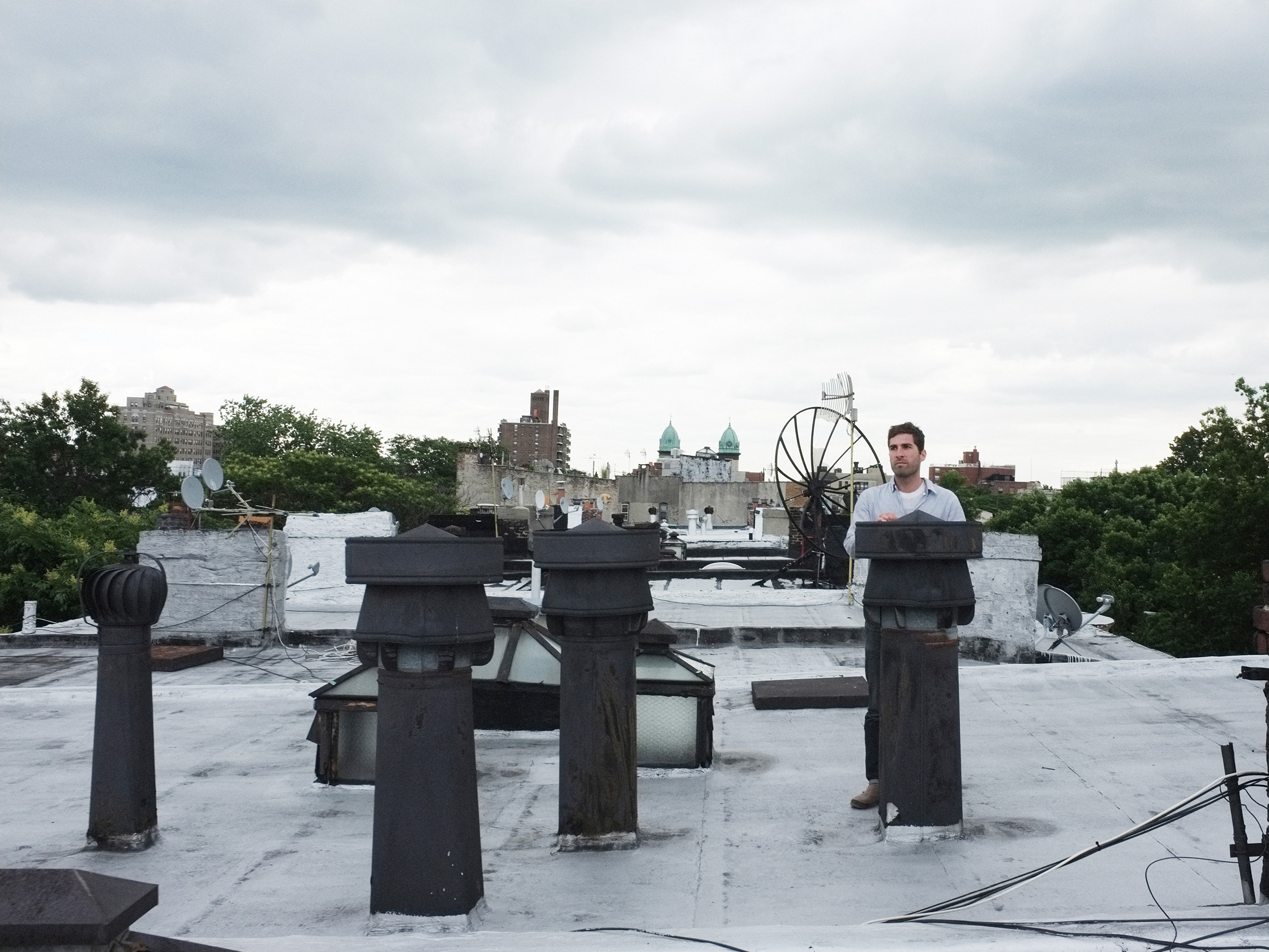
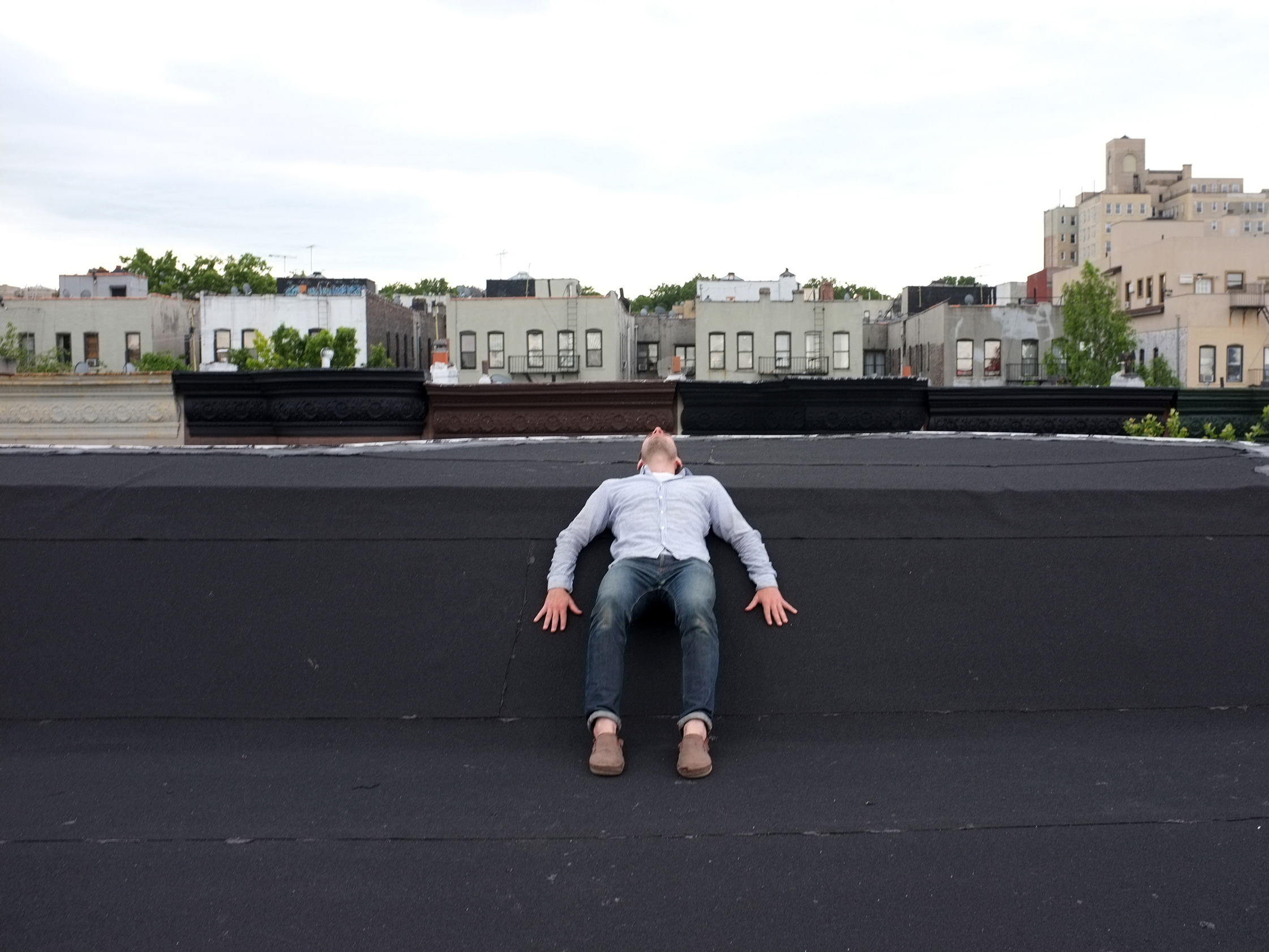
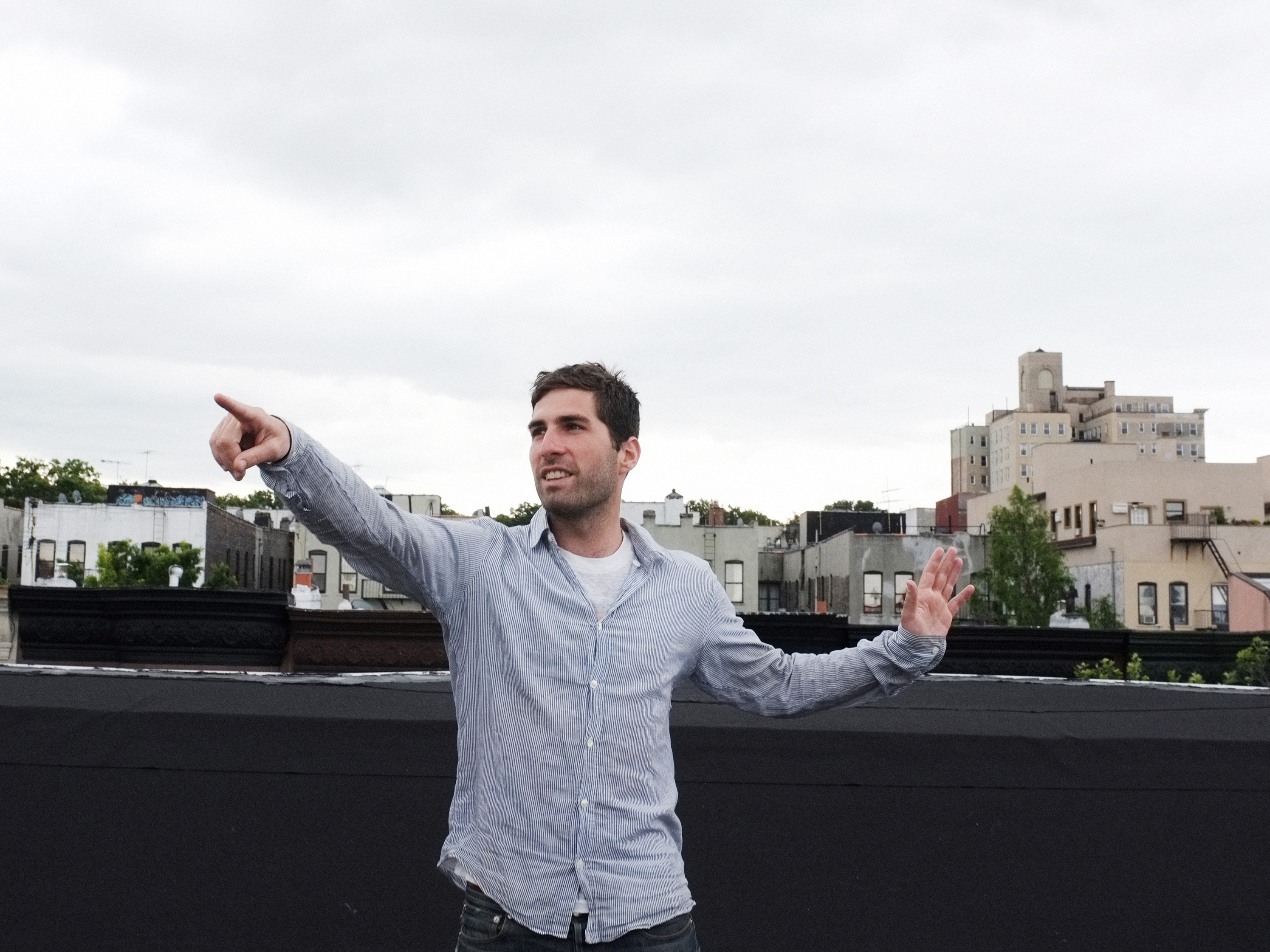
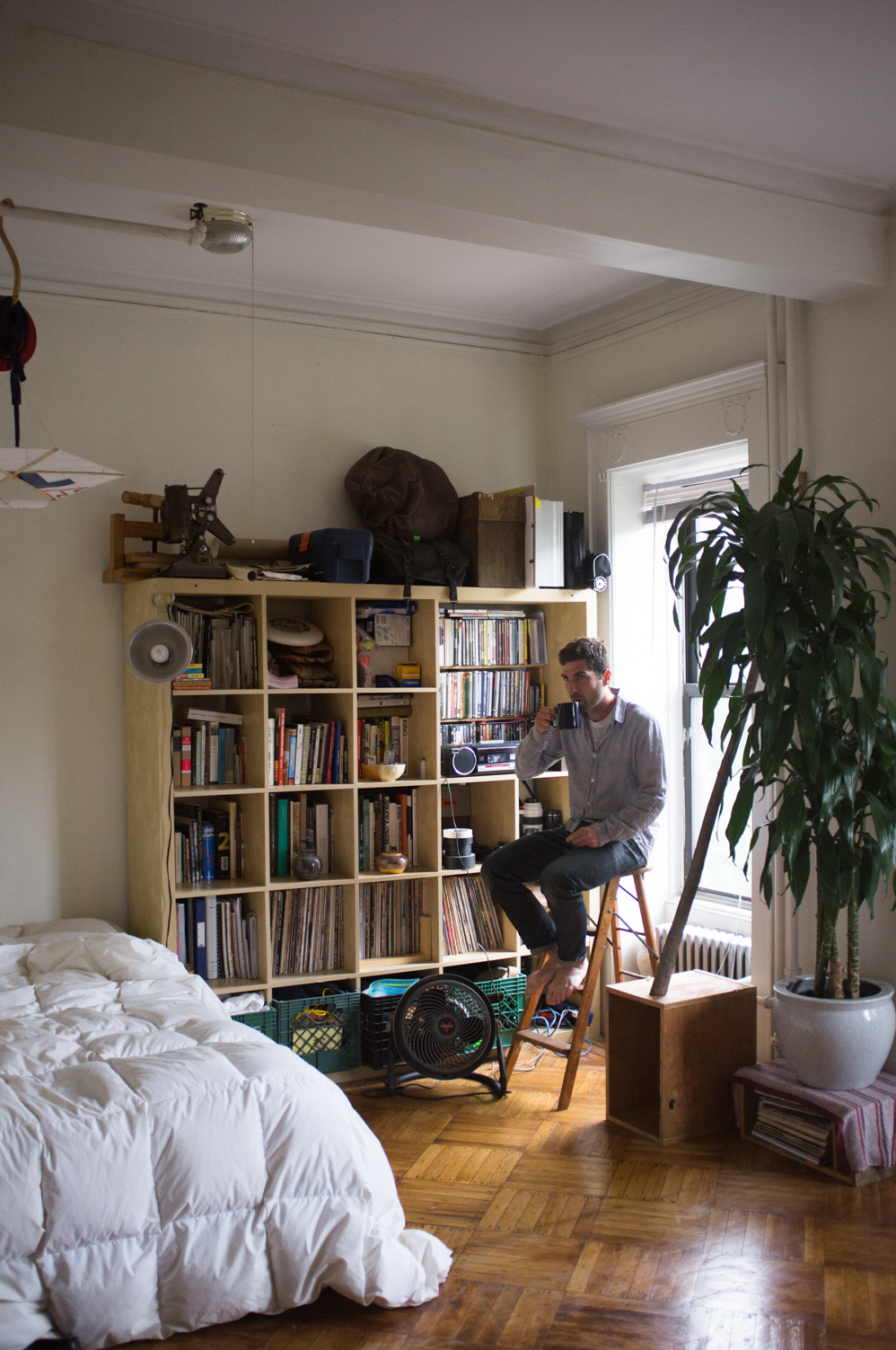
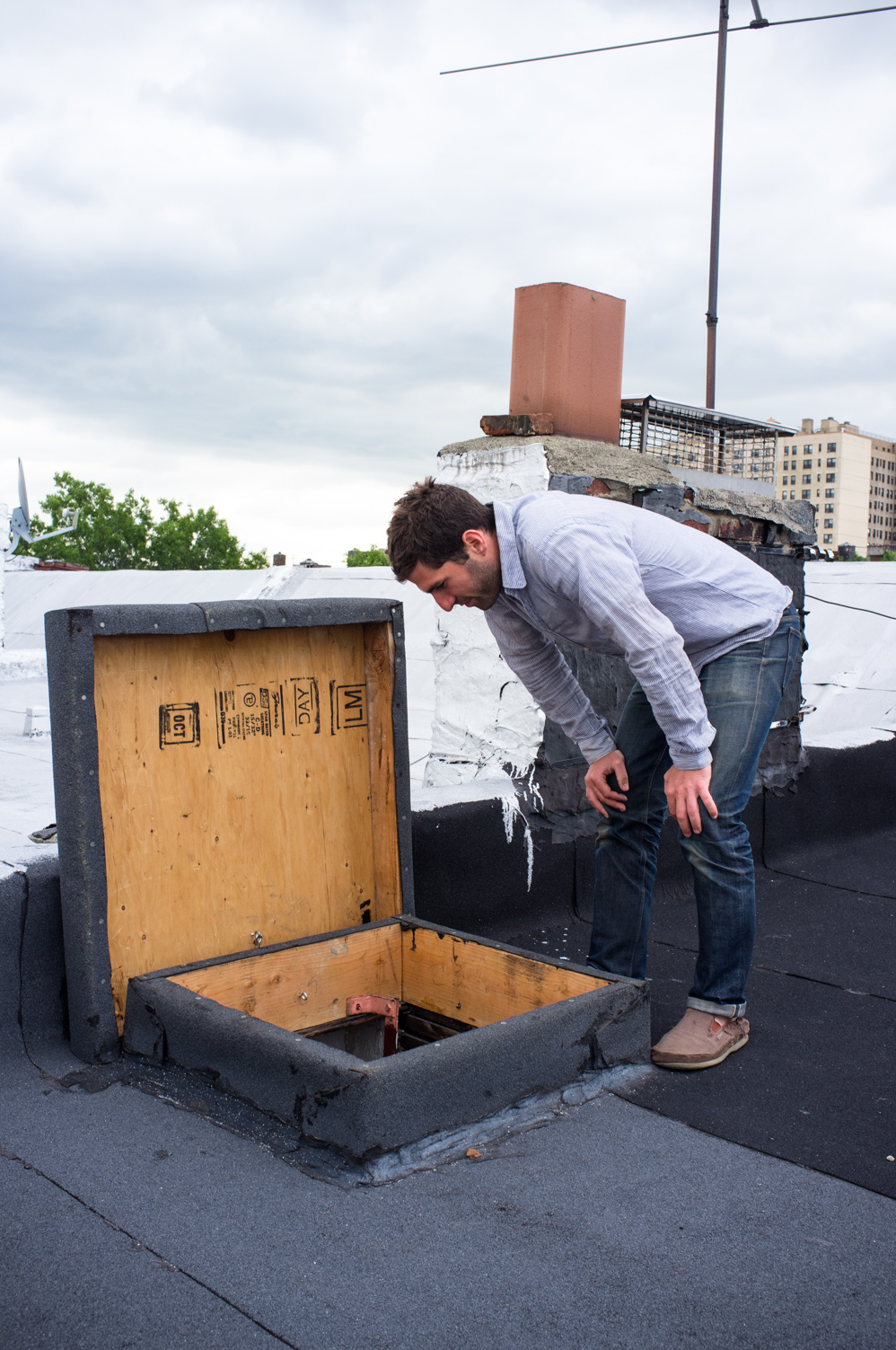
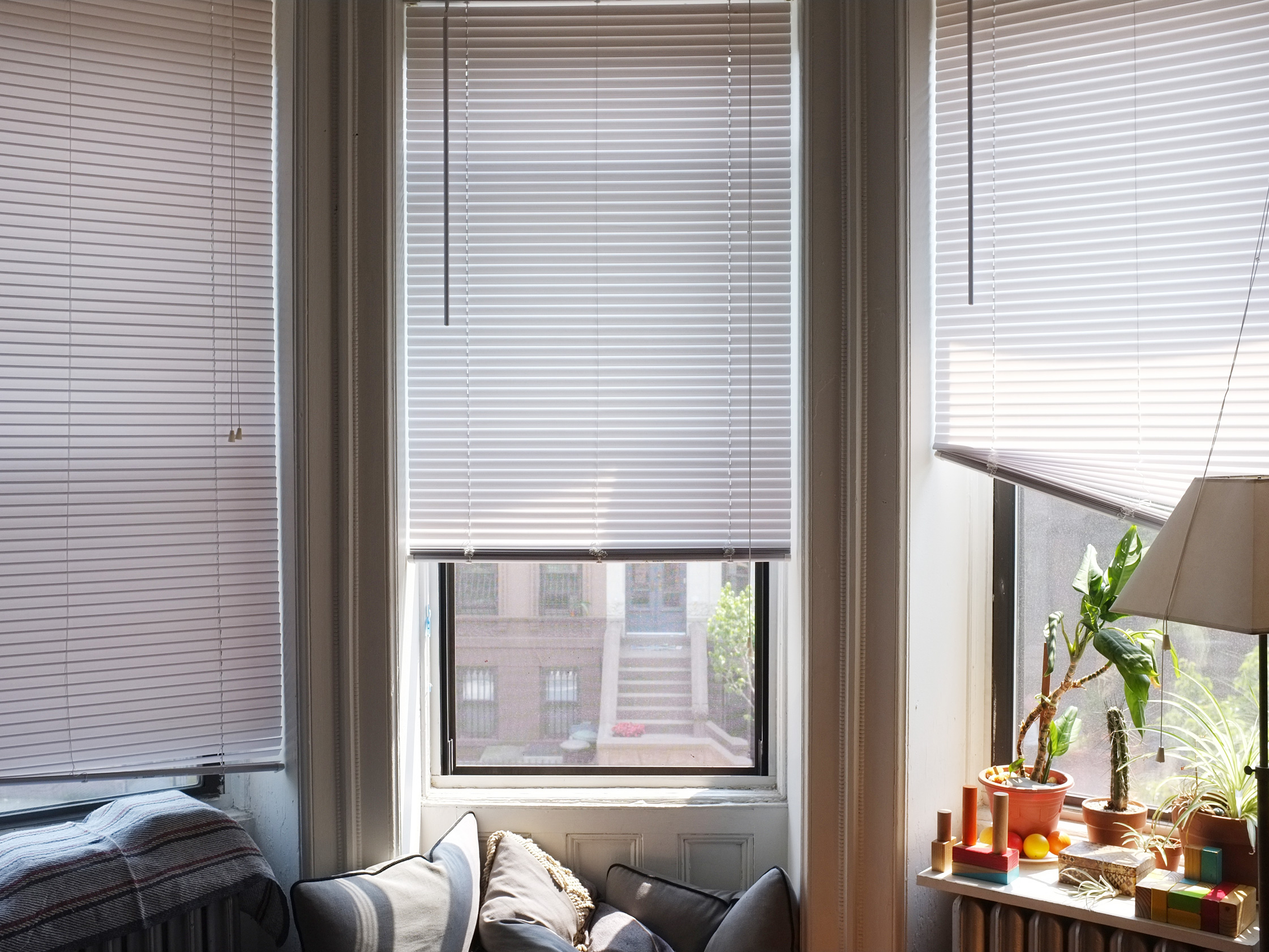
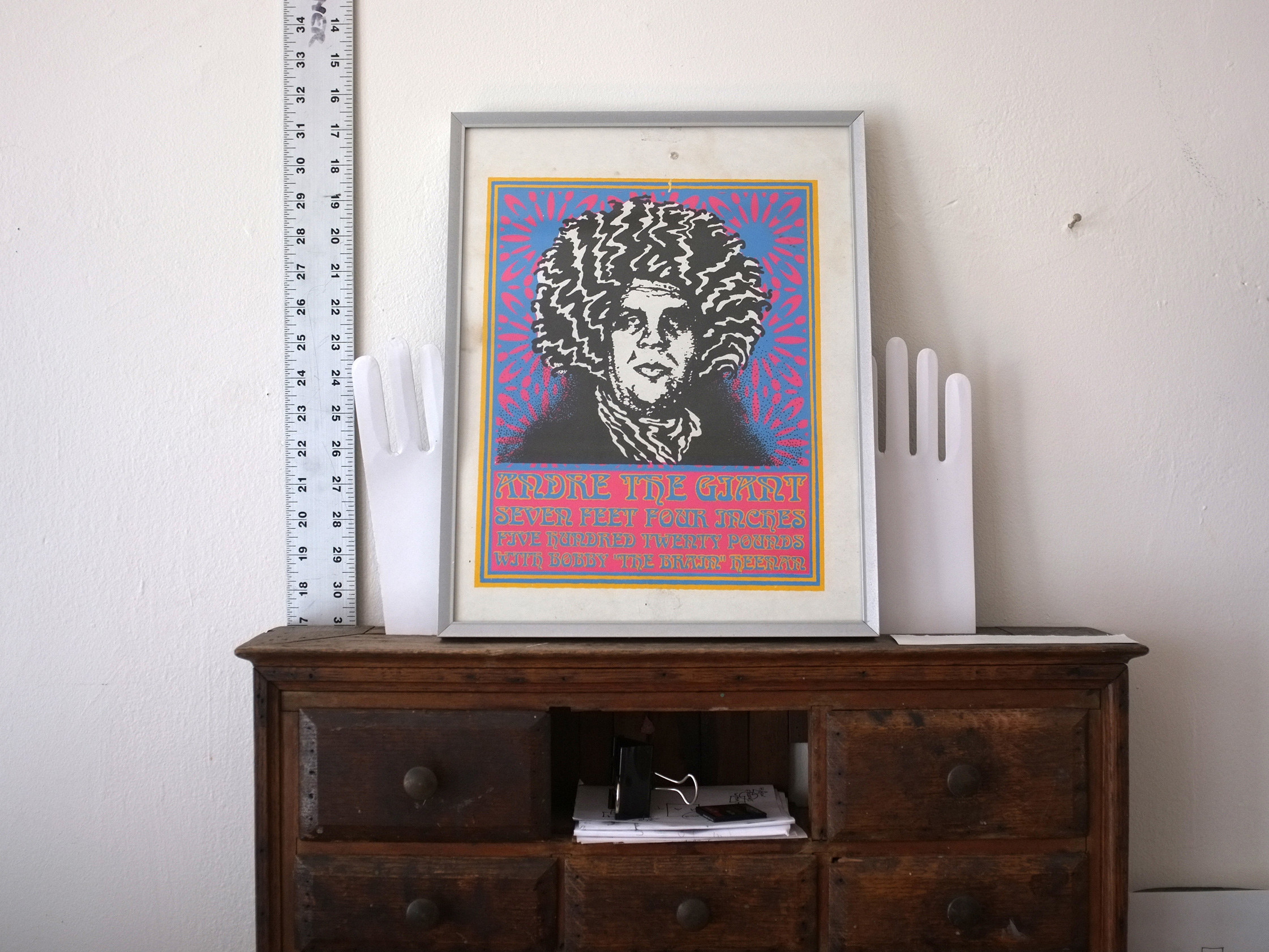
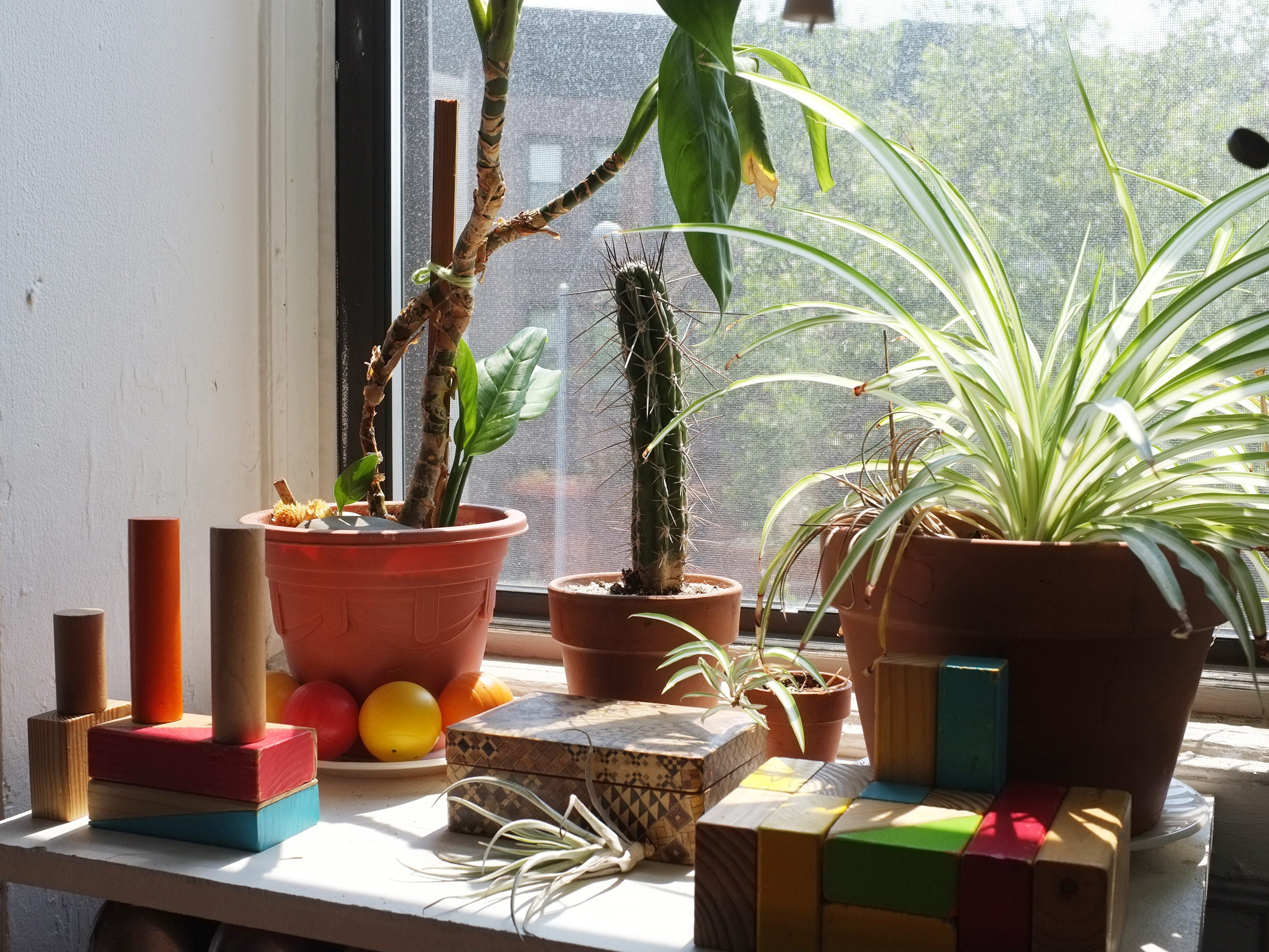
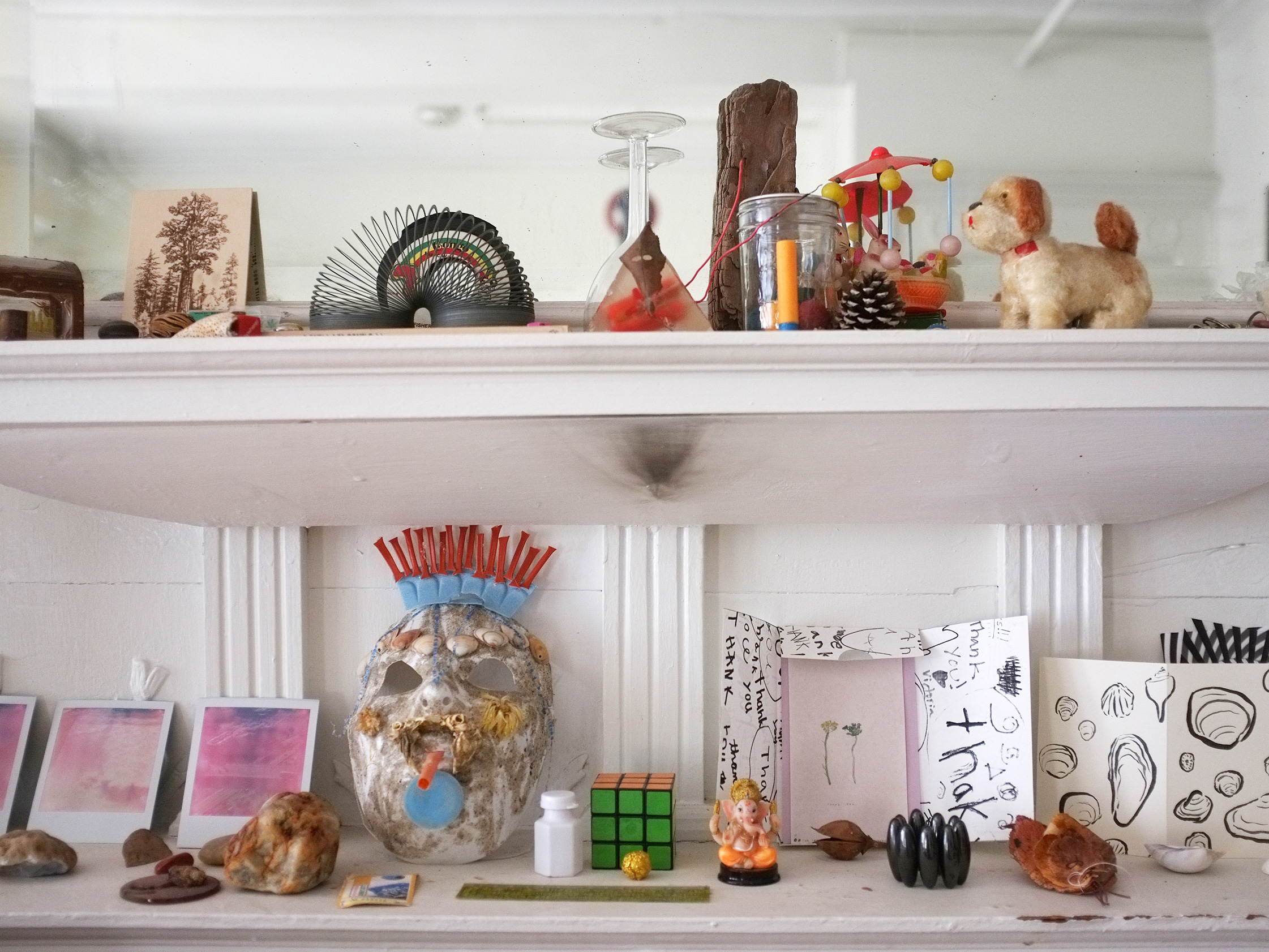
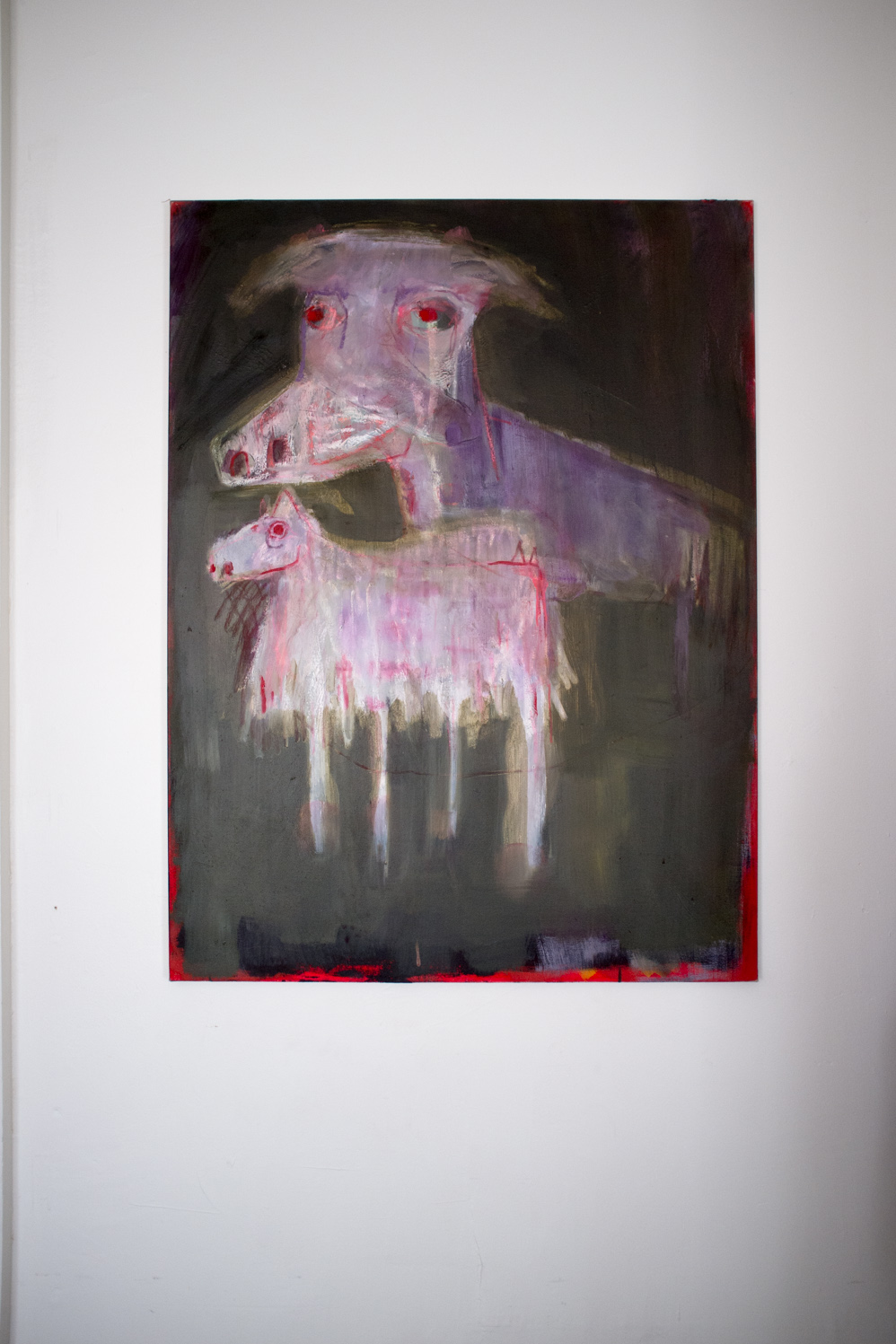
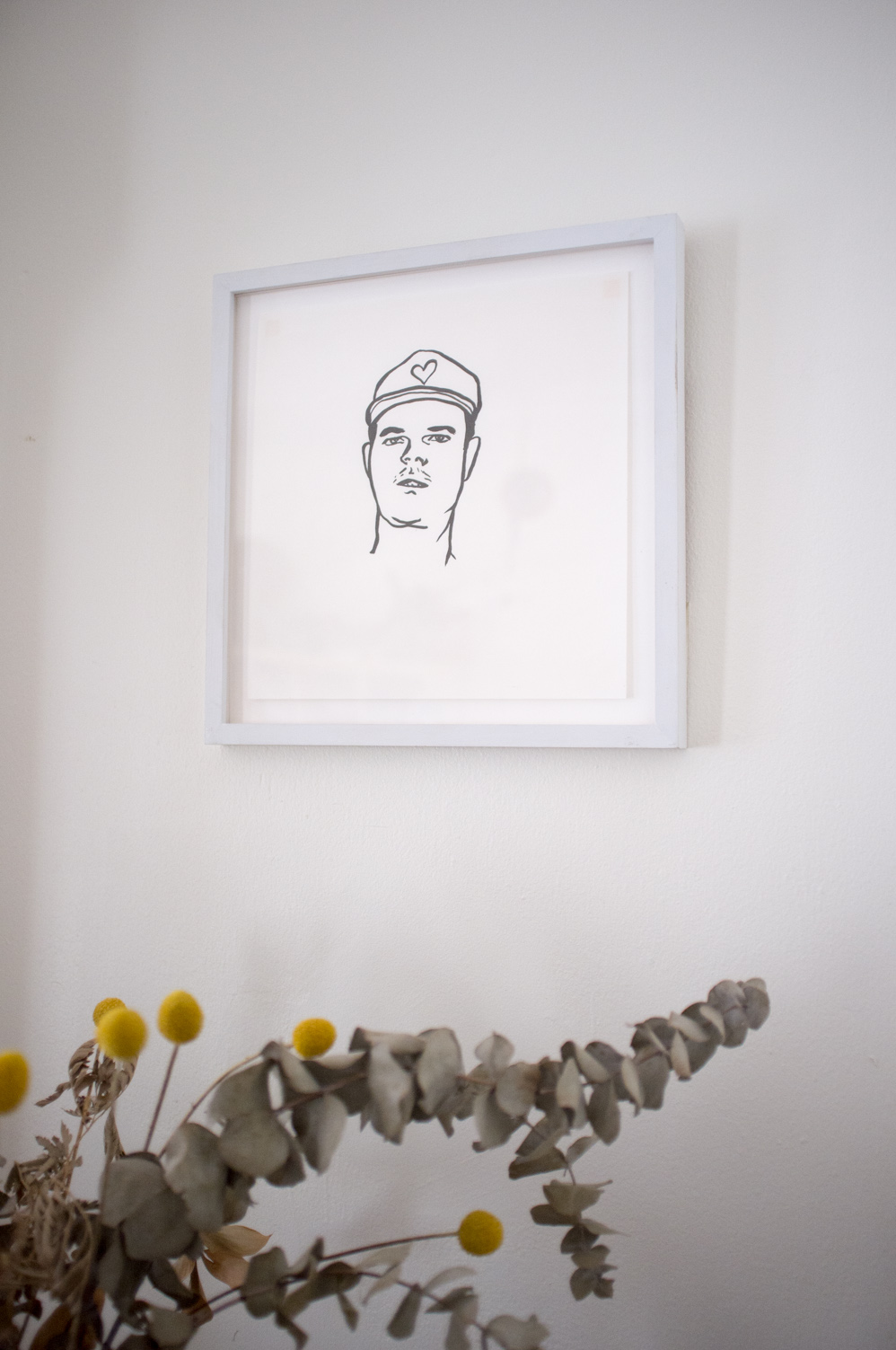
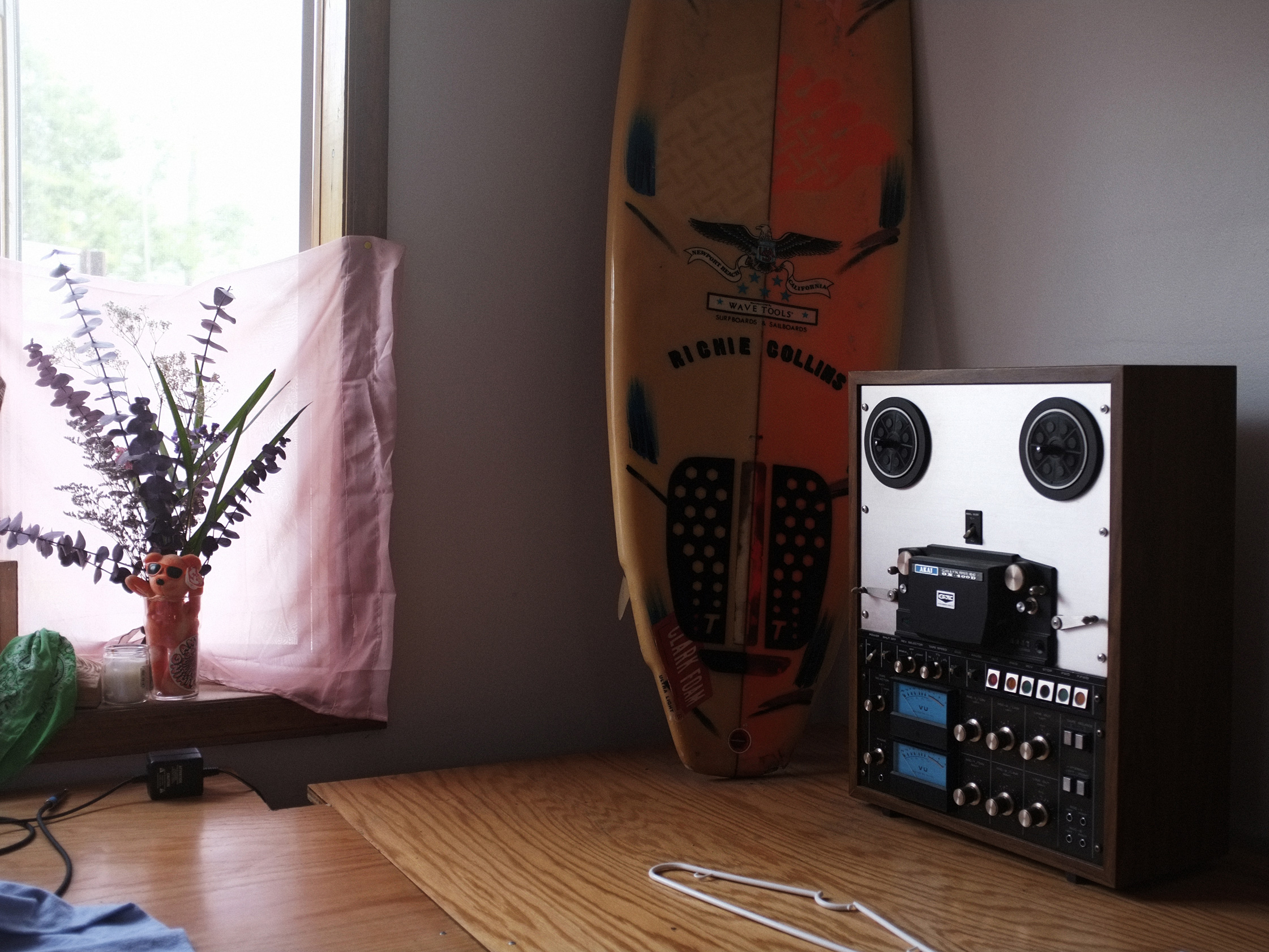
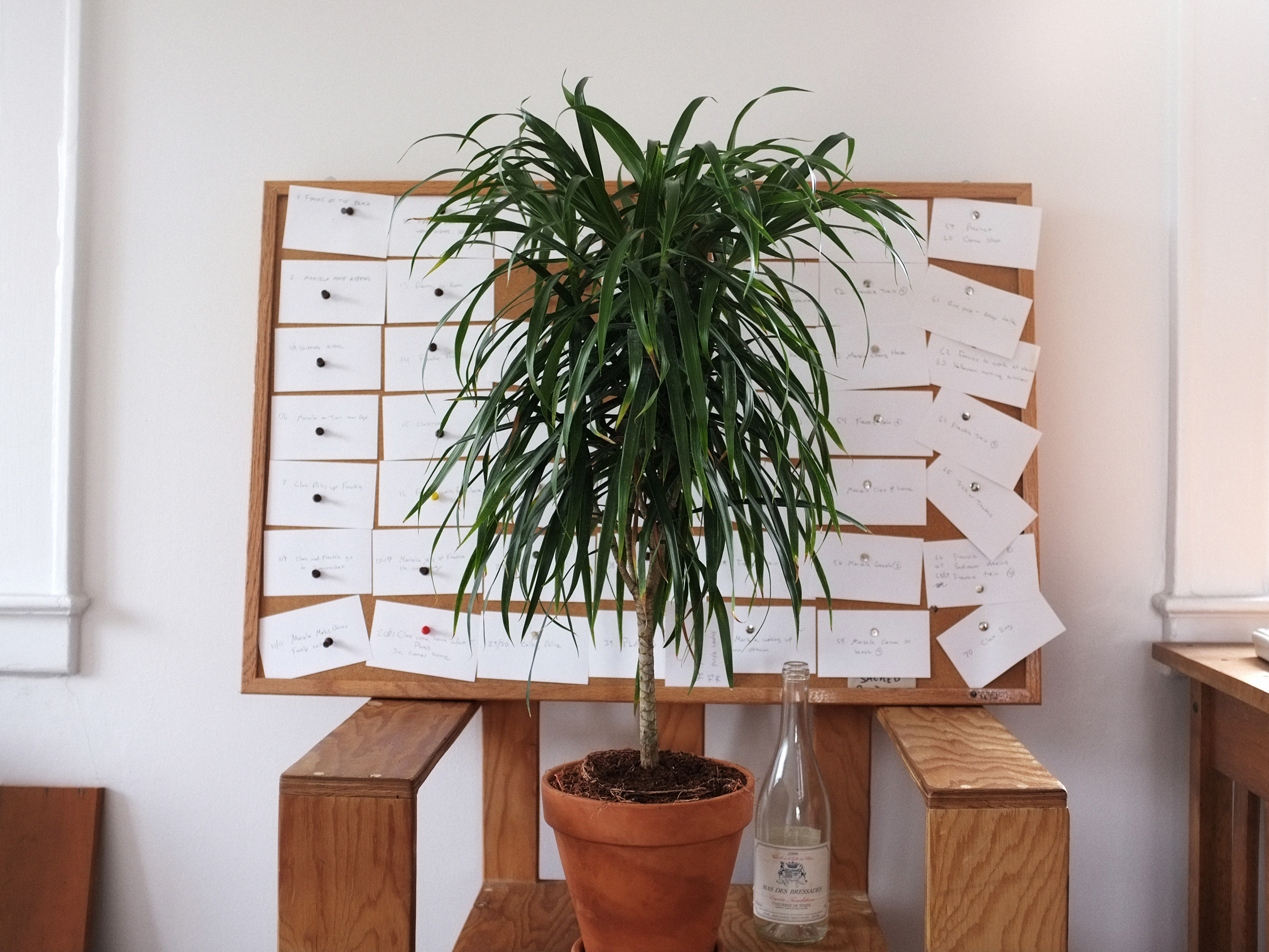
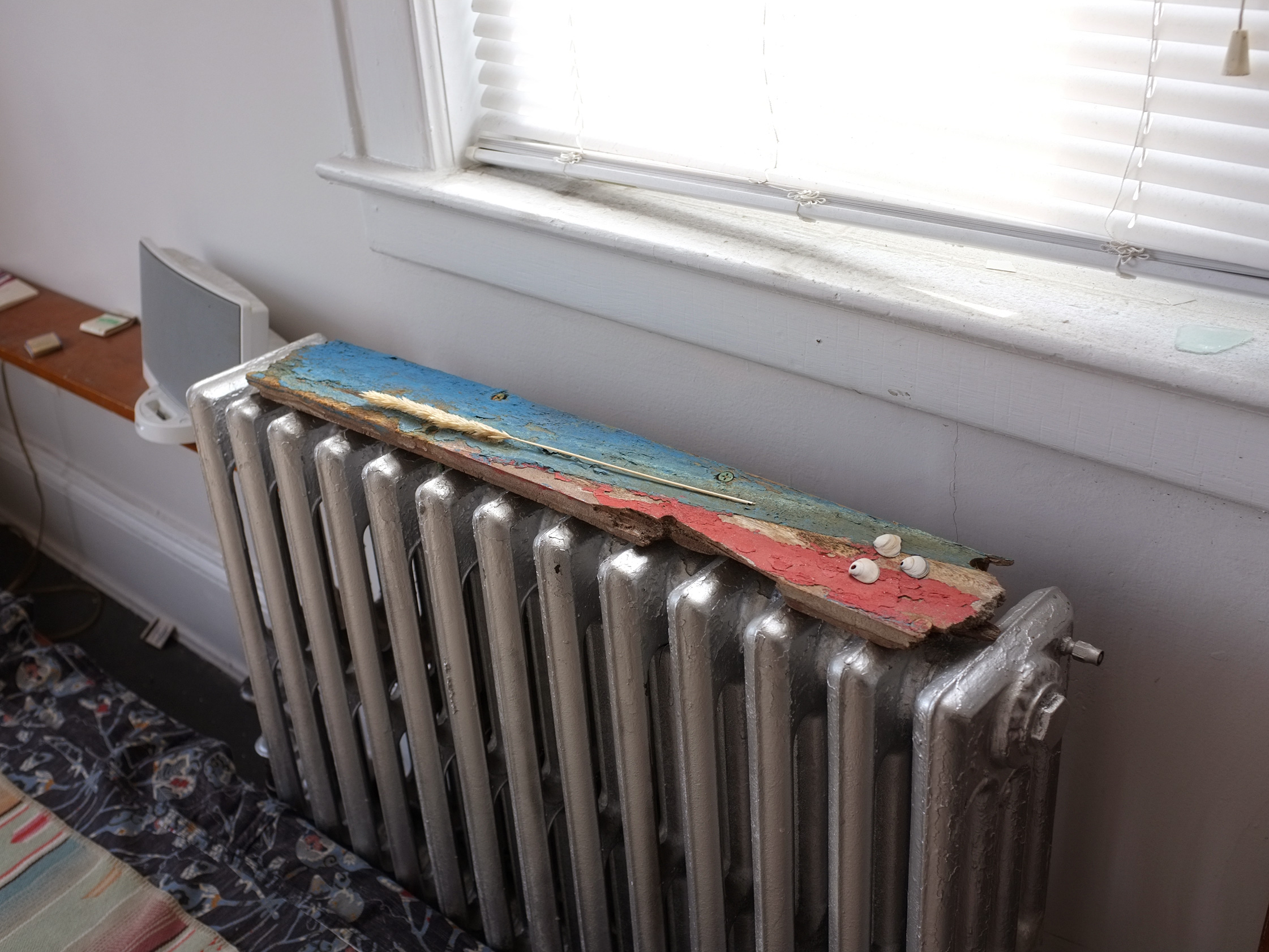
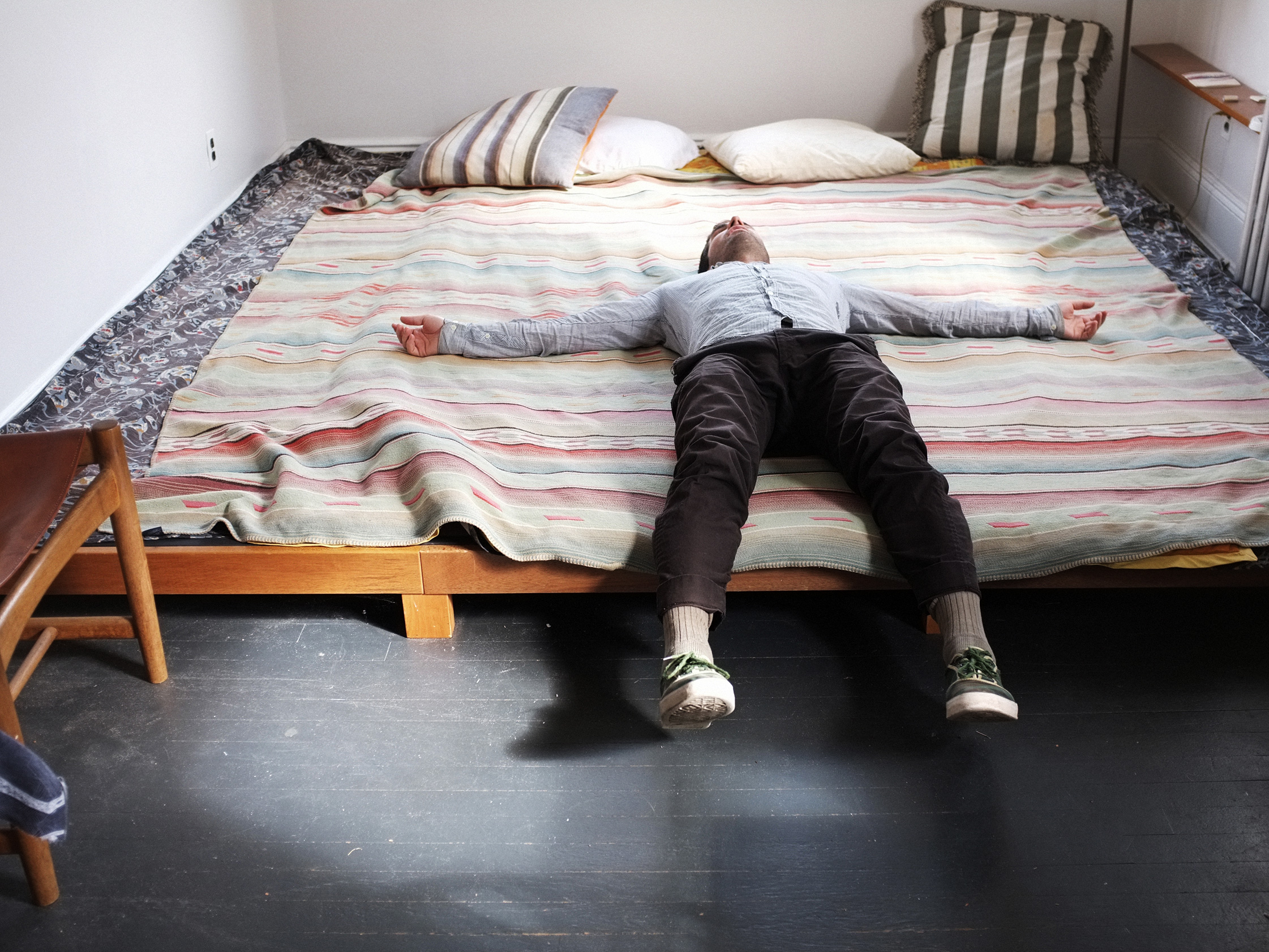
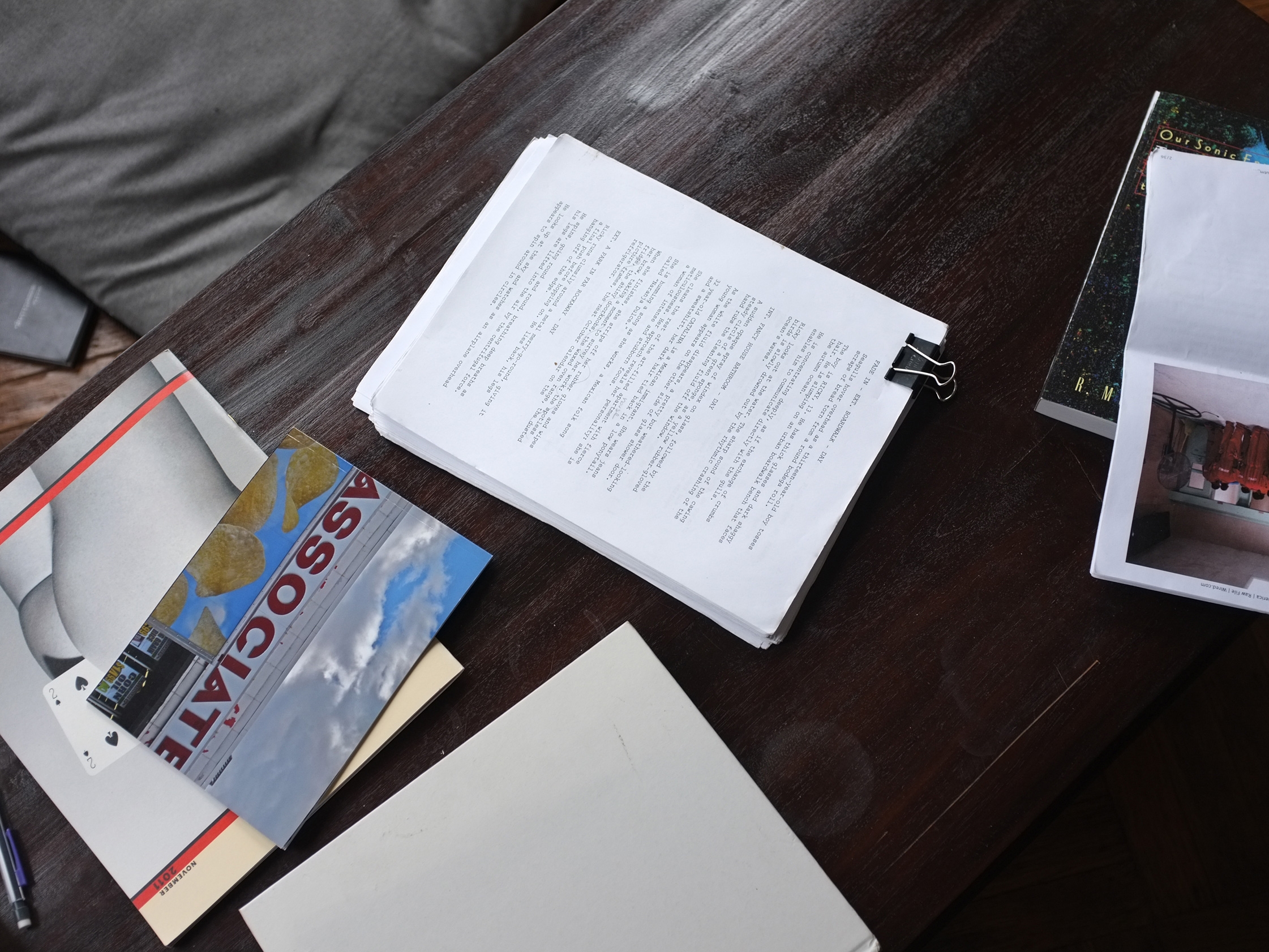
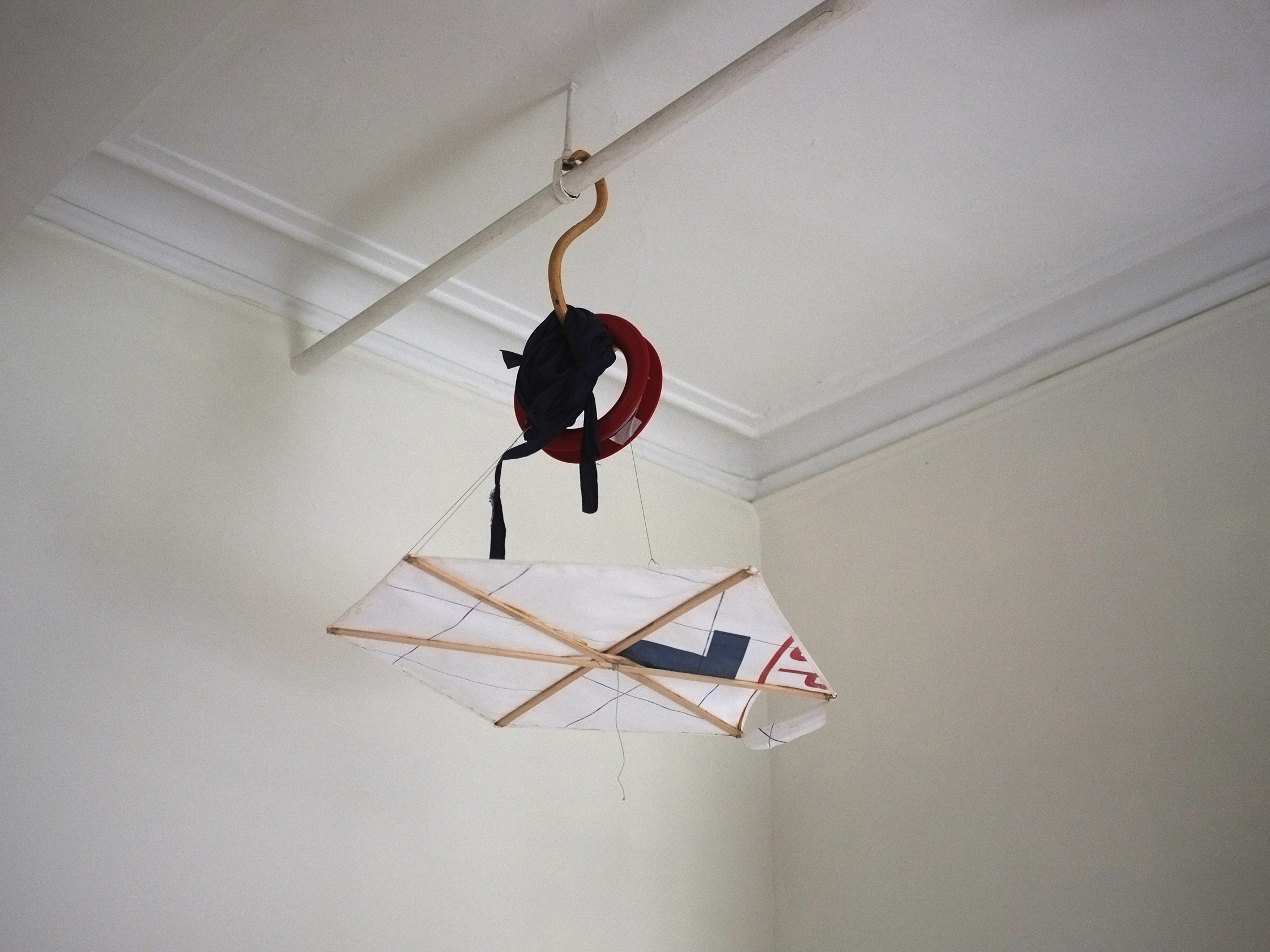
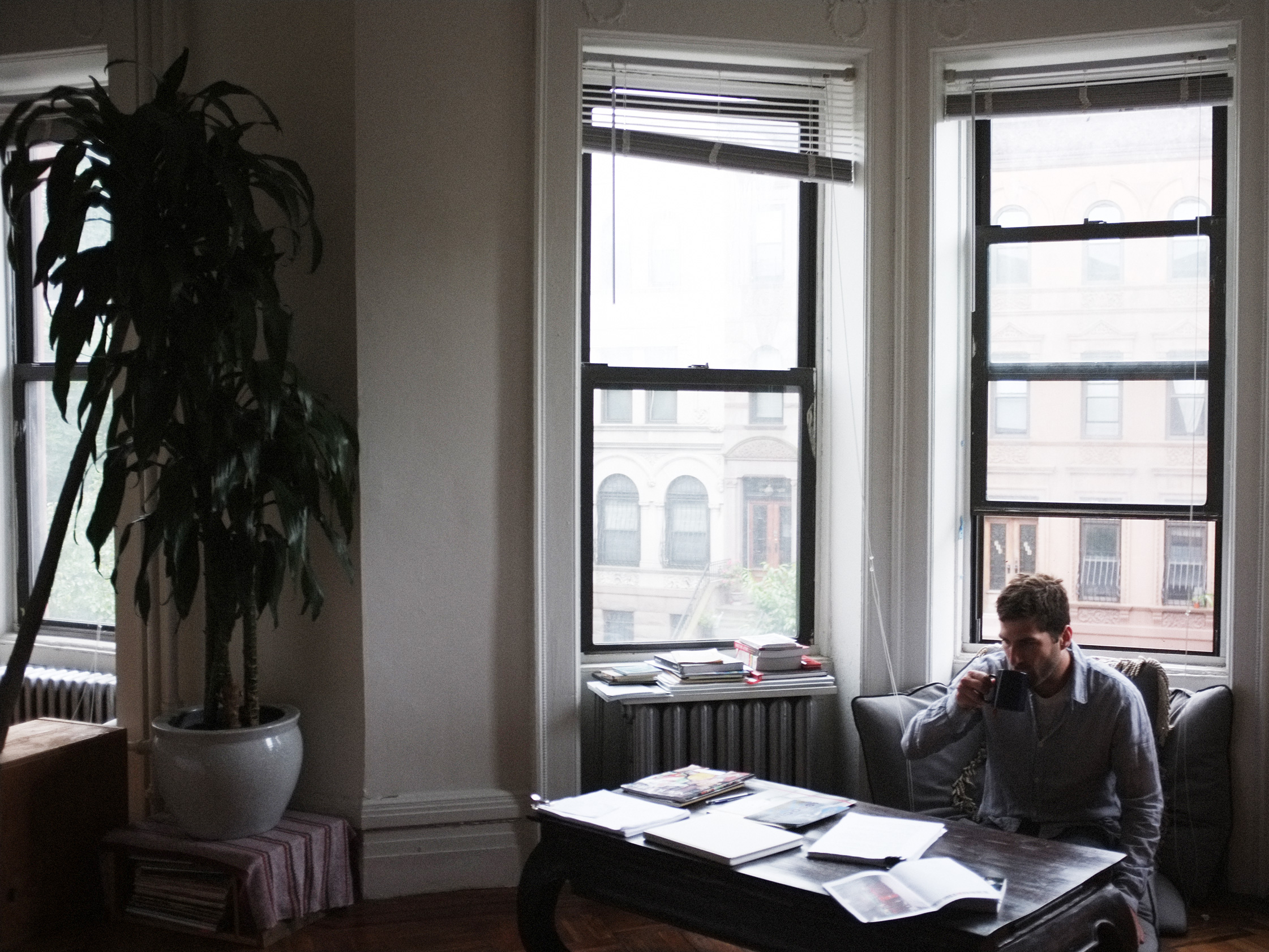
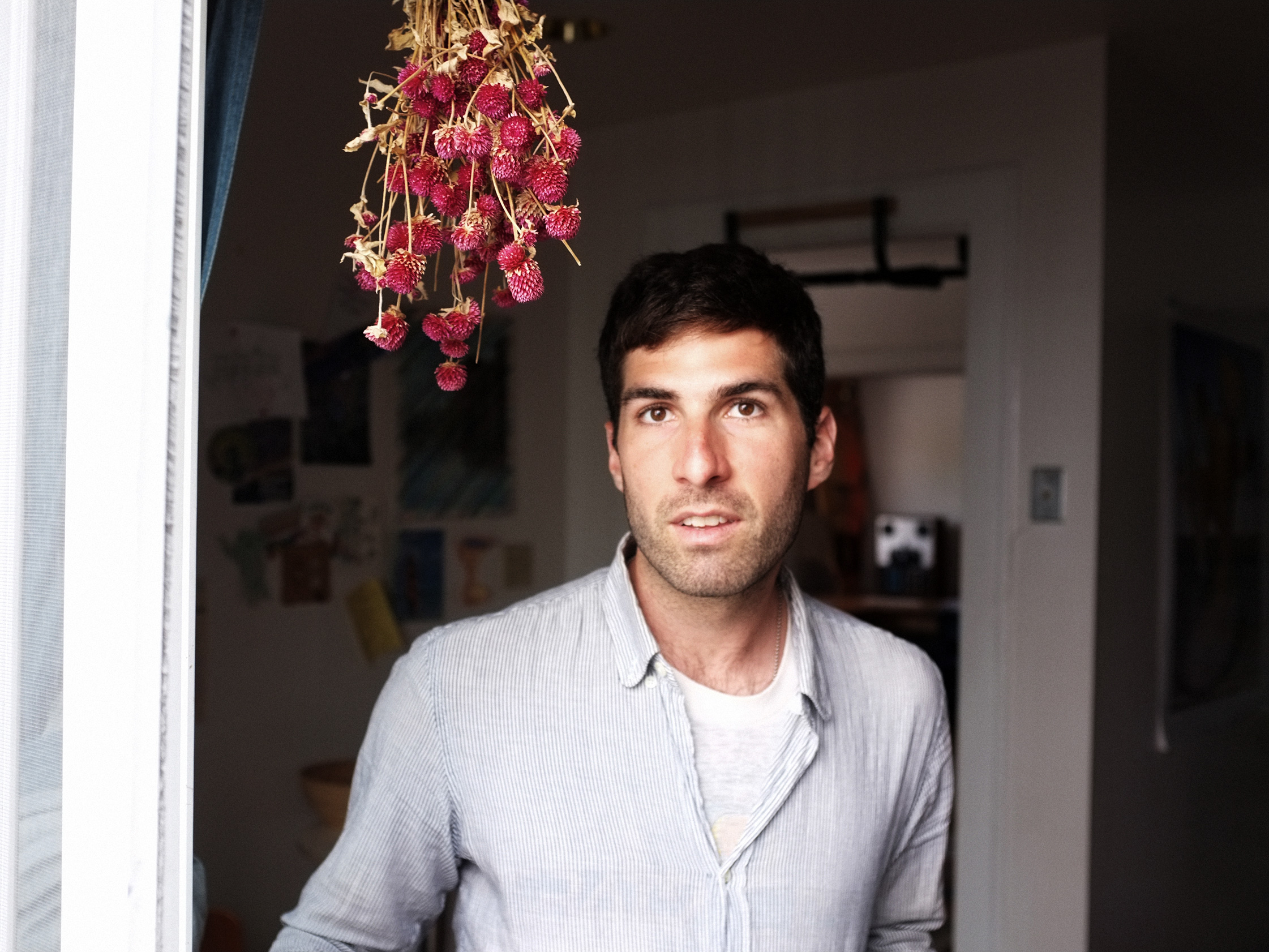
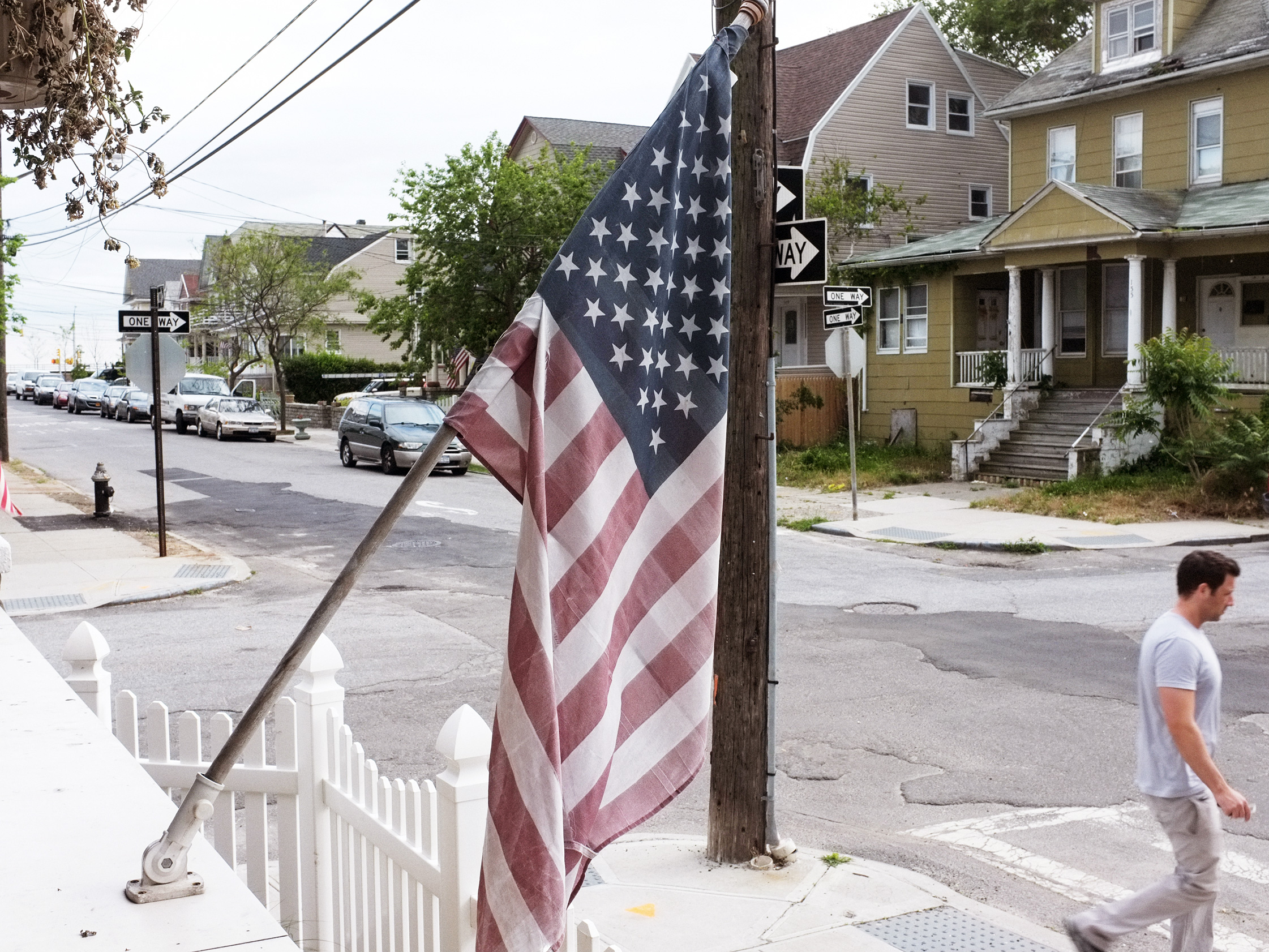
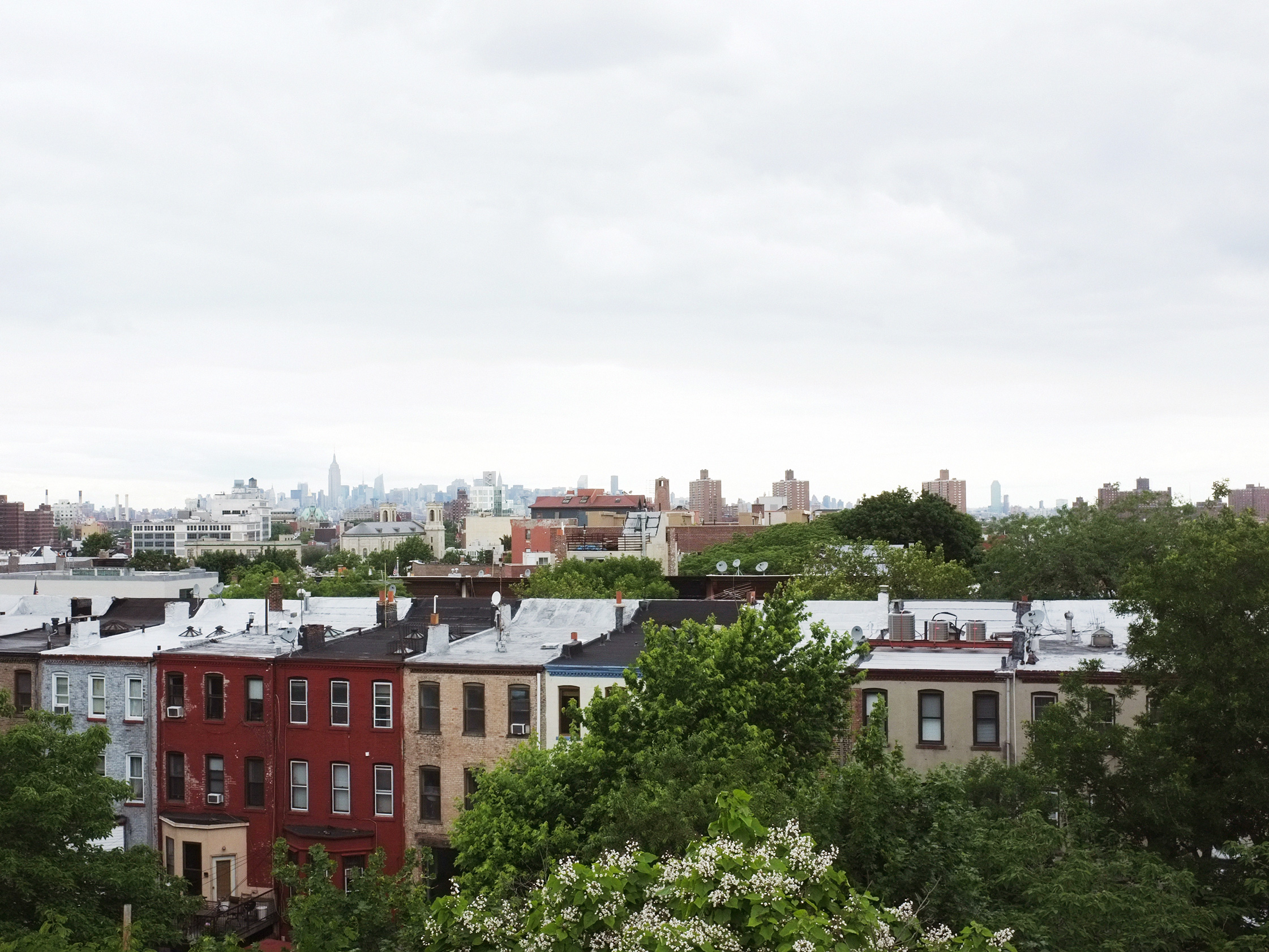
Can you introduce yourself, explaining where you’re from, what brought you to New York, and what inspired you to pursue the career that you are in right now
I grew up in Providence, Rhode Island, and lived there until I was 16. Thereafter, I went to boarding school for a few years and then to college in Connecticut, where I studied movies. I pretty much decided then that this was what I wanted to focus on after school. After graduating, I traveled to Cambodia with a few friends to make a feature-length film. The story was about an American family with an angsty son, who runs away to figure out why it is so hard to find peace in the world. I did the cinematography and helped with the production. It was a small DIY operation, but I learned a lot about going out and doing it. Actually, the family side of the story was set just outside of New York. That’s what brought me here initially. Then a great living situation opened up, which made it easy to stay here. I kind of fell in love with the city and wouldn’t want to live anywhere else. I’ve been here for seven years now. I’ve moved and lived in a bunch of different neighborhoods, but Rockaway Beach is my favorite area. A couple years ago I got a place out there with some friends. It’s amazing, because you are in New York, you can get to Manhattan in an hour but the ocean makes you feel completely transported.
Your film work conveys a cosmopolitan outlook and incorporates themes like travel and discovery of cultures. How does New York function as a base for traveling to, and thinking about other places?
I am definitely interested in juxtaposing people and places, and New York obviously has a ton of that. Different kinds of people live in close proximity. On the subway, running errands, going to work, but everybody has a different lifestyle. I believe within these different lifestyles there are common, basic things unite us all. That’s what I’m interested in. You are forced to see that here in New York. You can’t help but notice.
What are some cultures that you are especially interested in?
I like Island culture. I grew up listening to a lot of reggae. Wah Do Dem, my feature film was shot in Jamaica. After wrapping, I have gone back there about seven times, made music videos, documentaries and a perfume commercial. Two years ago, I made a movie about the New York West Indian Day Parade, which is one of the biggest parades in the United States with 3 million people representing all the different Caribbean countries. In contrast, the carnival in the Caribbean of course is awesome, but it’s always the carnival of each country. Here, in New York you have all of them together. It is an incredible celebration and it was fun to experience that culture at home.
In Wah Do Dem the main character, Max, arrives in Jamaica and a whole chain of events unfold that leave him without any of his belongings. After that, everything changes. It makes him free and able to finally connect with Jamaica’s people and landscape. There he is, the country, the people and nothing else. This thought was such a graceful idea, to simply become a clean slate and reduce yourself to your core. Do you agree?
I believe that there are good and bad people everywhere in the world. Before I went to Kingston for the first time I was very nervous, but only because people told me to be and what a violent place it is. Yes that is true to some extent, but it’s gang violence, which is not targeted towards foreigners. Anything can happen anywhere, people get murdered in New York all the time, too. You just have to be real with people, respect them. Respect is a huge part of Caribbean culture. There are a lot of hard people out there and you have to be real with them. That is what ultimately happens to Max; he is forced to be straight up.
It seems like your work always manages to end on a positive note. Do you follow an agenda that encourages such a worldview or is that something that just comes natural?
I don’t want to make movies that cause people to live in fear. There are movies that are totally realistic, yet negative and I believe they can lead people to be judgmental or more frightened. Stereotypes can be created by movies, because the audience gets tricked to believe that they have these experiences, which are really confined to movies. When you watch a film and a certain minority is depicted as criminal,then that might affect real life. You know what I mean? When you think that way even just for a second, you give out a different kind of energy. It’s the fear of the other that divides us.
I felt it myself when I was a little skater kid going to the corner store and the guy would look at me from behind the counter with very suspicious eyes. He assumed that every kid with a skateboard was trying to steal from him. I could feel that distrust and it only made me want to steal. So many things happen subconsciously in fractions of seconds. It’s a delicate line. So yes, there is a lot of responsibility in making movies and I want to create films that make people think more openly. But even Wah Do Dem is misunderstood. When you read comments on Netflix or Hulu, many read that, after watching the film that Jamaica seems like the scariest place and that they would never go to there. I just think, really? I don’t know, everybody sees things differently. That was not the idea. A lot of tourists travel to Jamaica and go straight to a gated compound, have everything served to them and never see the beautiful country with its green hills. To show that was another intention.
When people misunderstand the intent of your filmmaking, does that make you sad or disappointed?
No, I mean obviously when you make something that you believe in, you want people to understand it the way you intended it to be understood. But sometimes that is just hard to do, no matter what you put out there. Learning about that is interesting. I am in a very fortunate position to be able to put something out there and have people react to it, even if they don’t like my work. To me it’s most important to be productive and feel satisfied with my work. Only then can I be a positive presence amongst the people I interact with. It’s really important to just be a nice person, to keep listening and responding to everything and everybody around you. Never to think that you are any more important, or better than anybody else, but just to be there.
As an artist or filmmaker it’s very easy to be misunderstood, because the act of making is so subjective. Do you do anything to make yourself more objective towards your own art? Is being objective important to you?
Well, I don’t believe that there is such a thing as objective art, but one thing I am going to do is a ten-day silent meditation, in which I hope to learn about time. My goal in movies is to create an experience, in which you are unaware of time. To me, that is always a sign of a good filmmaker and it comes from a greater understanding of time. For example Tarkovsky, he makes incredibly slow movies, but somehow time disappears. I can watch his work and be totally unaware of everything else.
Can you tell me a bit more about this meditation retreat and what you expect to learn?
I am going to basically just sit for 10 days; it’s a pretty rigorous schedule. You will get up very early and sit, eat a little, and sit more, maybe go for a walk and sit more, all of this in absolute silence. And then after 10 days, I come back to New York. I am really excited to experience 10 days as simply 10 days, in their most unadulterated form.
One last question. Can you tell me a bit more about your future project?
I am filming “Stand Clear of the Closing Doors“, the true story of a Mexican family living in New York, whose autistic son runs away on the subway for 11 days. The film will take place in Rockaway, where the family resides, as well as on the NYC subway. There is the autistic kid in the subway, trying to understand his mother and the world around him. The mother is an illegal immigrant from Mexico, who doesn’t feel like the police is there to help find her son. Although they are very different things, one micro about the individual, one macro about society, I like the parallel structure of people trying to navigate systems that are not designed for them. Everybody in the story has their own battle, while at the same time trying to love and accept each other. Meanwhile, there is an inherited moral conflict. The kid is not white, he is on the subway, he is clearly suffering, and he is interacting with the thousands of people, yet nobody tries to help him. It just shows that everybody has a different sense of responsibility in the world.
Sam, thank you so much for taking the time to show us around your apartment and beach house while speaking to us about your career in filmmaking. His new film Stand Clear of the Closing Doors will premier at Tribeca film festival this April.
For more information on Sam you can also visit our previous article on his efforts to assist in the aftermath of hurricane Sandy at Rockaway Beach here.
This interview took place prior to the aftermath of hurricane Sandy in November last year. Image taken at this time paint a different picture to the current landscape in Rockaway Beach. Our heart’s go out to the community in their effort’s to rebuild and move on from this experience. Read our interview with Sam Fleischner we did shortly afterwards here.
This portrait is part of our ongoing collaboration with ZEIT Online who presents a special curation of our pictures on their site. Have a look here!
Interview: Nina Schwartz
Photography: Anna Rose
